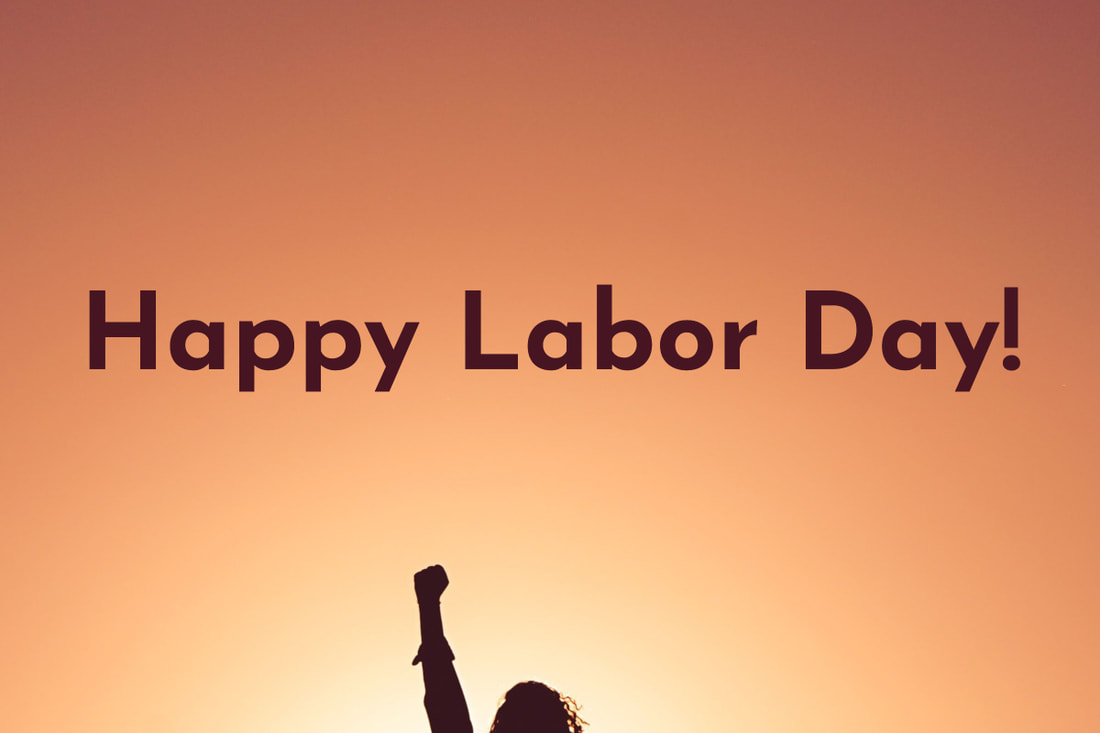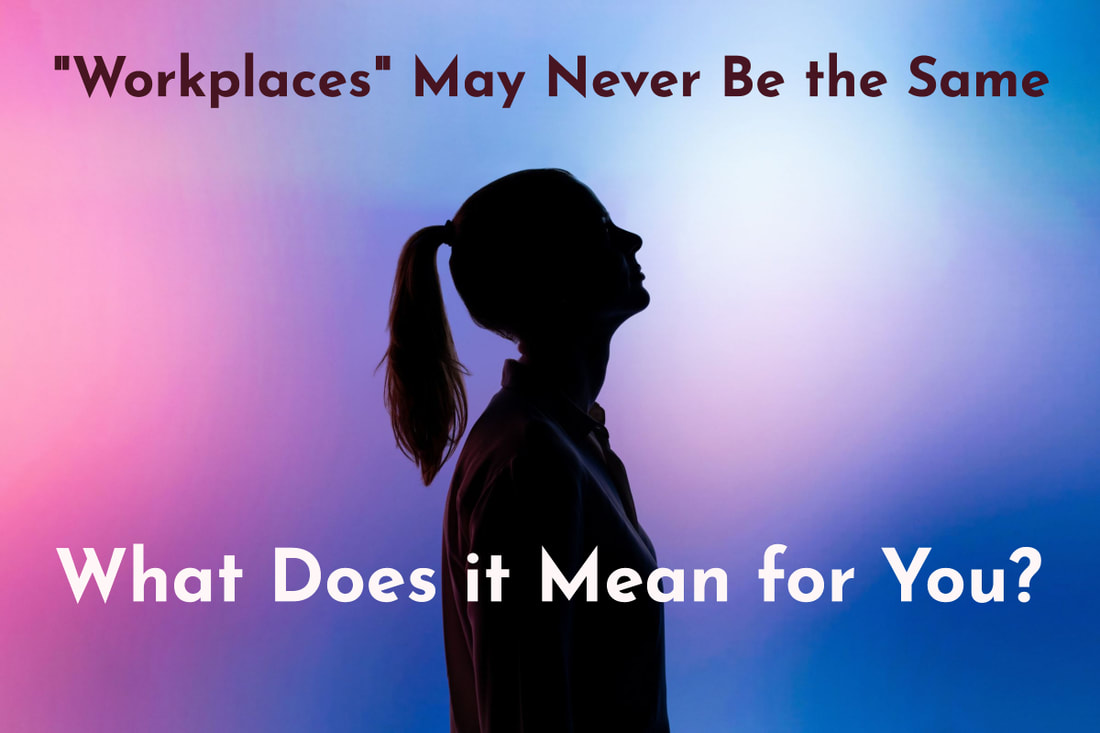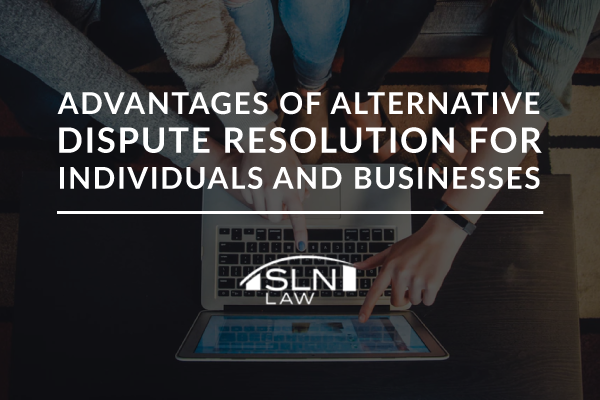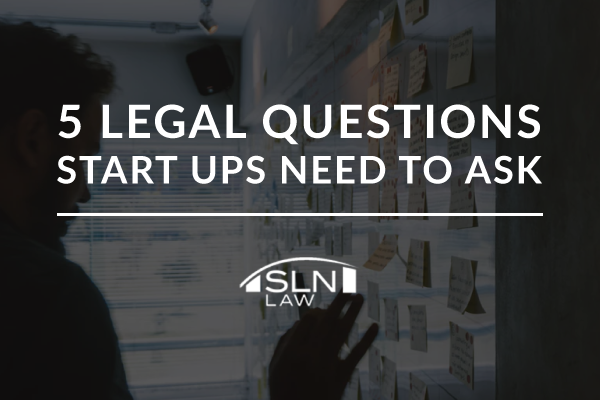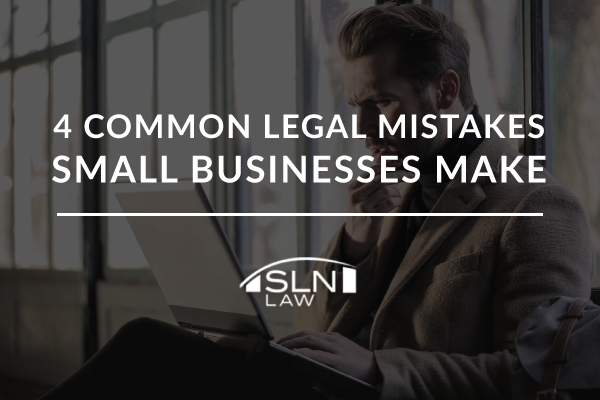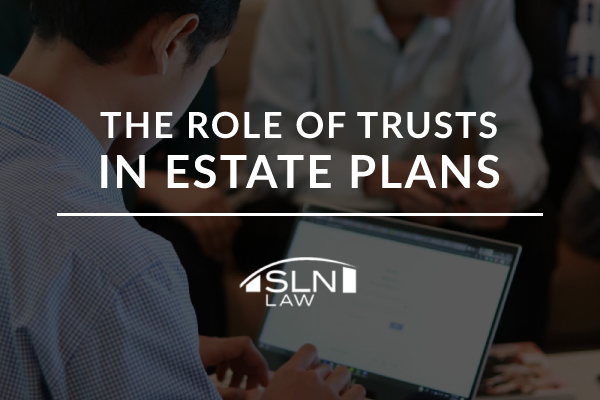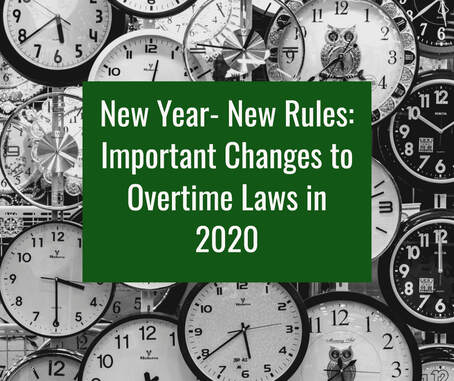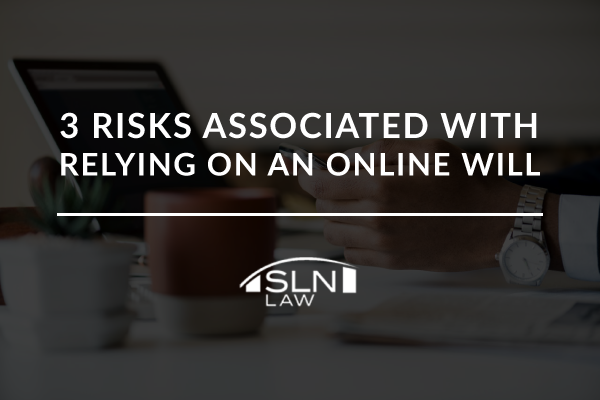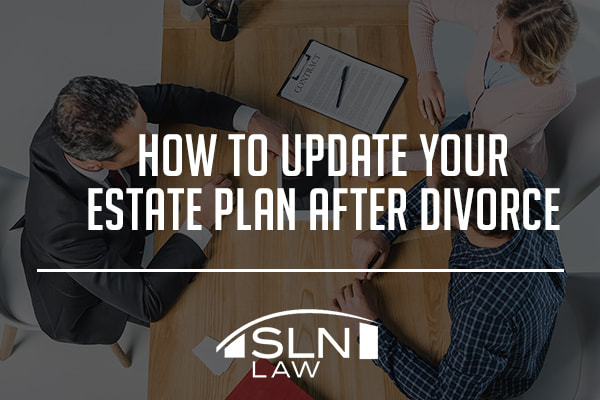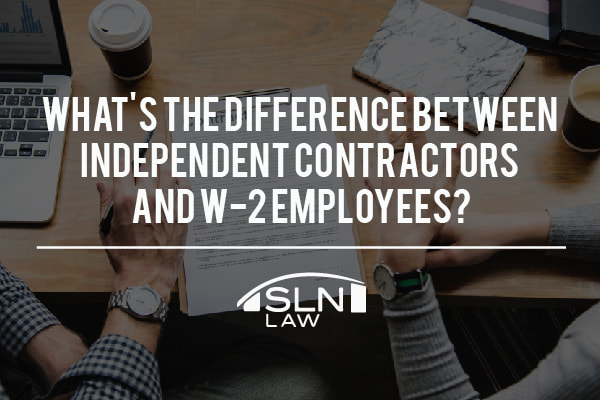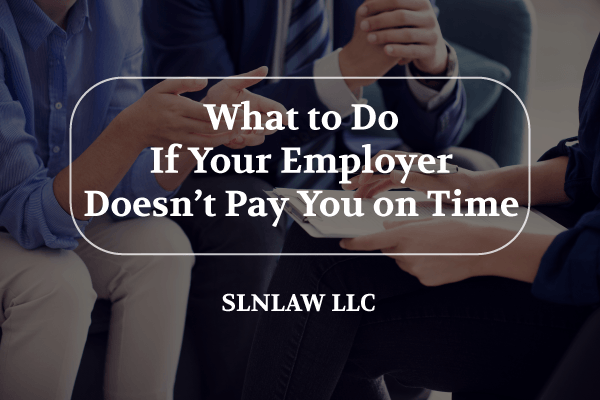A Trust That Matters Even if You Are Not Rich: Protecting Assets From Long Term Care Costs4/18/2023
Protecting Assets From the Cost of Long Term Care
As we age, our healthcare needs increase, and long-term care becomes a possibility for many. Unfortunately, the cost of long-term care is often exorbitant, and can easily wipe out a moderate-income family's savings. However, with proper planning, families can prepare for these expenses and ensure that they receive the care they need. One effective way to do this is by creating a Medicaid trust.
A Medicaid trust is a legal tool used to protect assets from the high cost of long-term care while still allowing individuals to qualify for Medicaid. Medicaid is a government-funded healthcare program for low-income individuals, including those who require long-term care. However, to qualify for Medicaid, individuals must meet strict income and asset requirements. By creating a Medicaid trust, families can protect their assets while still qualifying for Medicaid, ensuring that they receive the care they need. Moderate-income families may be hesitant to create a Medicaid trust because they believe trusts are only for the wealthy. However, exactly the opposite is true. It is the moderate-income families who have worked hard to accumulate savings and assets who are most likely to lose most of their legacy due to long-term care costs. By creating a Medicaid trust, families can transfer their assets to the trust, which is managed by a trustee. The assets themselves cannot be taken out of trust, but the income from those assets can be used to support the person who created the trust. If this is done at least five years before you need Medicaid assistance, those savings and assets in the trust are protected and can be passed on to their heirs even if you receive Medicaid assistance. Creating a Medicaid trust does require some planning and legal expertise, so it is important to work with an experienced attorney who can help guide you through the process. However, the benefits of a Medicaid trust are well worth the effort. By protecting their assets, families can ensure that they receive the care they need without having to worry about the high cost of long-term care. How a Tight Labor Market Increases Non Compete Risk
A record 4.5 million Americans quit or changed jobs in March, 2022. Employers are reporting increased pressure to raise pay and offer enhanced benefits in order to attract and retain their top talent.
That is the carrot. There is also a stick, which is enforcement of non compete agreements, or at least threats to enforce them. The good news is that if you are asked to sign a non compete for a new job, you may have more negotiating leverage than is usually the case, given the tight labor market. The bad news is that your current employer may be more likely to try to hold you to whatever agreement you signed when you started your job. Though retaining key employees for the sake of retaining them is not one of the reasons employers can enforce these agreements (see below), there is a stronger incentive than anytime in recent history for employers to try. The Basic Rules of Non Compete Enforcement
If you live or work in Massachusetts, and signed your non compete on or after October 1, 2018, your agreement is subject to the requirements of the new non compete statute. These requirements include: (i) a provision to pay you half your highest base salary for the duration of the non compete; and (ii) evidence that you were given ten days to review the agreement before signing, and advised to consult with counsel. Additionally, agreements subject to this law cannot be enforced against you if you are non-exempt from overtime or if you are terminated without cause.
Even if your agreement is dated before October, 2018, there are many opportunities to question enforcement. First, enforcement must be necessary to protect a "legitimate interest" of your employer. This basically means it needs to protect either the employer's confidential information or its good will (usually in a sales context, the customer relationships you have developed by working at the company). Simply not wanting you to leave because it would be difficult to replace you is not a legitimate interest for purposes of a non compete. Second, the length of the restricted period, or the geographic scope, could be unreasonable in light of the interests the employer is trying to protect. Anything over a year, or that extends to a broader territory than you actually worked in, could be subject to challenge on this basis. Finally, there are things your employer could have done to call the agreement into question. Examples include failing to live up to its agreements with you, or significant changes in your compensation or responsibilities after signing the original agreement. What to Do if You Are Thinking of Leaving a Job
If you are thinking about leaving your job, it is best to speak to an attorney before you accept another offer and give your notice. What many people don't realize until it is too late is that their new employer might rescind the offer if they are threatened with litigation over a non compete. The employee then finds themselves out of their old job but without a new one to go to.
In contrast, if you know your rights ahead of time, you can make an informed decision not only about giving your notice, but also how you discuss the matter with your prospective new employer. This way you will know before you quit whether the new employer will stand by you in the event of a dispute, or whether you will be out of a job if your old employer threatens suit. What to Do if You Are Threatened With a Non Compete Lawsuit
This may come as a simple email from your boss or Human Resources. It could also be a cease and desist letter, usually written by a lawyer demanding that you stop doing what you are doing (i.e., taking the new job). Neither of these require you to respond. They also don't necessarily mean that your employer is going to take the next step and file a lawsuit.
However, it is almost always a good idea to consult an attorney as soon as you receive a threat of a lawsuit. Not only can this help give you clarity and often peace of mind about your level of risk, but it is also a great opportunity to negotiate a resolution with your former employer that will allow you to take the new job and address any legitimate concerns they may have. How We Can Help
We offer a flat fee review of your agreement, as well as negotiation with your employer and, if needed, litigation defense. It starts with an initial call, which is absolutely free. Just click the button below to schedule a call back from a member of our team, or call us directly at (781) 784-2322.
3 Easy Estate Planning Steps for the Second COVID-19 WaveWe are in the next COVID-19 wave in Massachusetts. Just as we had started to resume activities that were suspended for the first part of the year. Just as we had started to feel like something close to normal might resume. And just as we had started to get to taking care of some things that we did not feel we could do earlier. One of the things you may have meant to do was get on top of your estate plan. For lots of reasons, now is a really important time to get that done. But if it feels too overwhelming to tackle the whole subject, here are some easy steps you can take to get through this second wave with a some peace of mind. Health Care ProxyThis document authorizes someone you trust to make medical decisions if you are unable to do so. Most people think of this as an "end of life" issue, but it is equally important for situations where you may be temporarily incapacitated. For example, if you contract the virus and are sick enough that you cannot meaningfully participate in decisions about your care. You will almost certainly recover, but in the meantime it can be confusing and distracting for your family and your health care providers to not have clear direction. A valid health care proxy for you, your spouse, and your children if they are over the age of 18, can solve this problem. It simply requires a form with the required language, properly executed and witnessed, that you can give your proxy in case anything happens. For the duration of the COVID-19 state of emergency in Massachusetts, we are offering to prepare this document for you free of charge. Temporary Guardianship for MinorsYou may know that you can appoint guardians for your young children in a will, in case you and your spouse pass away at the same time. What you may not know is that you can sign a temporary authorization that will allow a trusted friend or relative to take immediate guardianship if you are both unable to care for them temporarily. This could happen, for example, if both you and the other parent are infected and hospitalized with COVID-19 This simple form can allow you to know that someone will be able to step in and care for your children without red tape if that happens. It will give your appointed temporary guardian the legal authority not only to take physical custody, but also to interact with your child's school, doctor, or other providers. These people are restricted by various privacy laws, and may not be able to even speak with your guardian about your children without proper documentation. Unlike other estate planning documents, you cannot simply sign this and leave it in a file until it is needed. This is because it is by nature temporary, and expires within a few months of you signing it. You can, however, have it fully prepared and ready to sign, so that if you or your spouse begins showing symptoms, you can sign it and know that there is a contingency plan for your children. Activating an Existing Health Care ProxyIf you are the health care proxy for an elderly parent, especially if that parent has cognitive issues or dementia, this is important for you to know. A health care proxy is only legally binding after a health care provider has deemed the patient unable to make medical decisions on their own behalf. In normal times, this is not usually a problem. You either already have a relationship with your parent's providers, or a physician in a hospital setting will make that determination when you admit your parent or bring them to the emergency room. COVID complicates everything, including this. Most hospitals have enacted strict visitor's policies, and many will not allow any visitors whatsoever in the emergency room. This means you could find yourself excluded from the health care providers' interactions with your parent, even if they are unable to explain their symptoms or participate in their care. This not only could compromise their care, but could be an extremely distressing and frightening situation for your parent. As we enter this second wave, if you hold a health care proxy for an elderly parent, you should consider speaking with their primary care provider to make sure there is a note in their record about their capacity to make decisions, so that you have some legal standing to make sure you can be present with them if they have to go to the hospital. How We Can HelpWe will prepare and help you execute a health care proxy, 100% free. We know these are tough times, and if we can help bring peace of mind in this one small way we are happy to do so. Just give us a call at (781) 784-2322, or use the button below to request a call back from a member of our team.
Labor Day 2020- There is Still Something to CelebrateIn a year where nothing is normal, and many are working without the traditional structure of a Monday through Friday job in the office, major holidays can sneak up on us. Memorial Day didn’t feel much like the beginning of the summer season when most children had been home from school since March. You may hardly have noticed the 4th of July.
Labor Day, too, has lost its punch this year. Its relationship to the beginning of school is unclear at best right now. The Monday “off” may just feel like another day just like the last 177 days of being in our homes. Yet the core value we celebrate on Labor Day- the recognition of the important contributions of all who work- is maybe more poignant than ever in 2020. We have celebrated the front line health care workers who showed up every day to care for people with COVID, often reporting to facilities that were overwhelmed and unable to provide adequate protective gear. These health care workers are not just the doctors and nurses, but the whole gamut of people who keep a hospital working and make sure patient needs are met. We have also seen our lowest paid and least celebrated workers- hourly employees of grocery and other retail outlets deemed “essential” during the shutdown- put themselves at a risk they probably never thought was part of their jobs by showing up everyday to sell us the things we needed to survive. It was no different for those of us who chose curbside pickup or home delivery. Those nice people who brought groceries to my door or to the back of my car had to go through a supermarket picking out the food I ordered, which others who may or may not have taken precautions had touched or breathed on. They had to interact with on-site grocery store staff who spend their days exposed to whatever the public brings into the store. The delivery workers had to stop at multiple other homes along their route, where people may or may not have been masked when they met them at the door. Their willingness to take these risks put food in my home, as it probably did for many of you. Then there are our teachers. They have had to grapple with a sea change in what their work- and their days- look like in a pandemic. Many were trying to learn how to teach remotely while doing the same thing other parents were- trying to supervise the remote schooling of their own children. Many were suffering the same feelings of loss from being separated from their classrooms that their students were experiencing. Many are still unsure how they can do what they love to do with children in a continued pandemic. There are also many essential workers that we do not see. People working in manufacturing of things that were deemed essential. The people who work behind the scenes to fulfill orders from places like Amazon. People in food processing and packaging- often refrigerated environments that assist the spread of the virus with employees working in close proximity to one another. Even those of us who could work remotely during the shutdown have had to grapple with fundamental changes in what work looks like. Maybe you were doing your office job from the kitchen table while also trying to watch your children. Maybe you were struggling to find ways to keep up with your responsibilities without the tools available in the office. Maybe you and your team had to completely rethink communication and collaboration in a virtual environment so that your company could still serve its customers. Whatever the situation, millions of workers made the unplanned transition to remote work in March, and have kept countless services available to consumers since then. Finally, there are the self-employed, or dba’s, or solopreneurs. Just because you are not drawing a paycheck does not mean you should not be celebrated on Labor Day. You are working as hard as anyone to find and meet people’s needs, in good times and bad. You have been doing it this year without a safety net, in the face of sometimes existential challenges to your businesses caused by COVID. 2020 has been a dark and frightening year. On top of COVID, we have been challenged with the urgent need to address issues of racial inequality and bias in our country and in our communities. People lost loved ones, and many fell through the cracks, sometimes tragically. We have a lot to still figure out about our world, and how to live in the COVID era and make sure people can earn a living and that all families and children have the education and support systems they need and deserve. But there is also something powerful and beautiful about everything that has worked. Sick patients got care. Our infrastructure remained intact. In the end most of us got access to the food we needed, even if it wasn’t always what we wanted at the moment. Lights stayed on. Elections happened, and will continue to happen. Our trash and recycling still got picked up. Businesses of all kinds found ways to continue serving their customers, and often new and creative ways to stay viable in a new environment. There are critical conversations and reforms happening in many workplaces and communities about equality and inclusion that are long overdue. Our social and economic safety nets like unemployment and food assistance have largely (with some hiccups) answered the call. In short, there are still reasons for hope, and reasons to be grateful for that which has given us reason to hope. If you are annoyed with a union for demands it is making in this re-opening period, remember that the work of the labor movement we celebrate on Labor Day was responsible for so many of the benefits and protections we take for granted every day, including some that have prevented even greater calamity in our current economic climate. You don’t have to agree with any particular union position, but we should all take a breath and remember that in advocating for their members they are doing the job that has historically improved conditions for everyone and helped make it safe for people to do the important work that they do, especially in challenging times. It is also important to pause and remember that credit belongs to all of the people who show up every day, in whatever way they can, to do the work that has kept us all going throughout the pandemic. That is, quite literally, every one of you who may be reading this post. We will get past this year, and we will be stronger. For now, we want to wish everyone a happy Labor Day, and offer our sincere gratitude and appreciation for the part you play in the engine that keeps us all moving forward, even if we may stumble from time to time along the way. Your Workplace in the COVID Era
We now all know or should know that the effects of the pandemic are far from temporary, even as many communities see their transmission rates dropping. Even as the state continues to re-open. The truth is our landscape is forever changed, including the workplace landscape.
For professionals and white collar workers, remote work may be here to stay, at least into 2021. For people who have to do their jobs in a physical location, the new practices and requirements about safety are likely to continue for a while. All of these things have practical and legal implications for both employees and employers. The New Remote Work Landscape
Those of us who can have been working without going into a physical office since at least March 2020. It appears that this will continue well into 2021 if not longer. Companies that have already announced indefinite work from home arrangements for at least some percentage of their employees include Facebook, Twitter, Square, Slack, Box, and Shopify. A recent survey of 100 Massachusetts based companies found:
When people are working remotely, it is common sense advice for the employer to establish clear guidelines for productive use of time and expected results. As an employee, you too should be thinking about this. In the physical office environment, you would be able to pick up on hints or signals if someone was not happy with your work product. In a full remote situation, without clarity about expectations, you could be caught by surprise by an unfavorable review or even a termination. Remote work, especially if some people are returning to the office and some are continuing to work from home, can raise employment discrimination issues as well. How does the employer decide who continues to work remotely and who returns? If the employees who continue to work remotely tend to skew female based on child care responsibilities, what happens when the next round of promotions passes these women over in favor of those who returned to the physical office? The same question applies if those who choose to stay home do so because of underlying health conditions. A remote work arrangement could be seen as a reasonable accommodation for a disability. However, if remote status results in long term job or career harm, the employee might have a claim for disability discrimination under state and federal law. It is important as well to think about the privacy of your personal information and the protection of your employer's confidential information. You may be working on your own laptop rather than the employer-provided desktop at the office. This means you are running both your personal information and your job-related information through the same system. Or your employer may have provided you with a company laptop, and for convenience you are using it at home for both business and personal communications. In either case, you should make sure you read and understand the policies your employer has about privacy and their right to search electronic devices. These are often broader and more intrusive than many people realize, but important to understand before you expose your personal information. The New Physical Work Landscape
A full return to a physical workplace creates many new complications for both employees and employers.
First and foremost will be compliance with the various orders and advisories regarding COVID-19 safety. The Commonwealth of Massachusetts has issued general safety standards applicable to all workplaces. These standards address the level of occupancy allowed in a building, distancing requirements, face covering requirements and cleaning and sanitation. There are also more specific standards for certain industries, which cover a broad spectrum of businesses that have re-opened or are re-opening. If you are returning to work in a physical location, you should review these standards so you can know what to look for in your workplace. Some employers are also instituting "temperature checks" to screen workers as they arrive at work for possible infection. This is not something most employees ever had to contend with before COVID. It is likely to feel intrusive, but is probably lawful. There is a limit, however, to how much information about your health your employer can or should ask for, particularly if you have an underlying condition that might qualify as a disability or a perceived disability. The new federal paid sick time rules have also caused some confusion in the context of re-opening. The Families First Coronavirus Relief Act (""FFCRA") requires employers to provide up to two weeks of paid sick time for employees who either have COVID or are under government or medical orders to quarantine. Massachusetts law also requires a certain amount of paid sick time if your employer has 11 or more employees. If you are sent home as a result of a temperature screening at work, you most likely are entitled to be paid for that time, at least until you can get tested and receive the test results. The same is true if you get a COVID test because you believe you have been exposed. Many doctors will recommend that you quarantine at least until the results come in, and sometimes longer. If the reason for the test is possible or likely exposure, this time should be covered as paid sick time. However, some employers are having all employees in certain roles take a COVID test as a preventive screening measure. It is not clear that time spent in quarantine awaiting results, even if on a doctor's orders, counts as paid COVID sick time, or that your job is protected if you stay out of work waiting for results. If you are asked to return to a physical workplace and you have a medical condition that puts you at high risk for COVID complications, you may be able to request reasonable accommodations to keep you safe. These could include working in a less populated area of the office, protective equipment such as plexiglass shields or N95 masks, or a staggered work schedule to avoid unnecessary contact with others. If your concern is about a medically vulnerable family member at home, existing law does not provide the same protection. This is because at present there is no legal basis to ask for an accommodation to protect someone other than you with a disability. Another consideration is what happens if you return to work and notice and report non-compliance with COVID safety guidance. You may report to a manager that mask rules are not being enforced, or distance requirements not observed, or cleaning not being done as required. This activity is not expressly protected under existing law, but may be considered by a court to be a form of "whistleblowing" that could protect you from retaliation. Workplaces Without Borders
Right now, the discussion around remote work is focused on people adapting in their current employment relationships. However, the longer employers operate in a fully or partially remote status, the more they may begin to think differently about how, and where, they hire new employees. After all, if your local employees can be productive from a laptop in their house in Massachusetts, why not widen your recruiting net and look for talent anywhere else in the country, or even the world?
And from the employee's perspective, a remote work arrangement opens your own location possibilities wide open. It may be possible to live in a community with a lower cost of living while still earning the compensation from your Boston area job. It may even be possible to move to a different state, which may have cost of living and tax advantages. Once the geographical boundaries of the employment relationship are blurred or even erased, new questions arise. If you live in New Hampshire and work remotely for a Massachusetts company, are you entitled to the protection of the Massachusetts wage and hour laws? Massachusetts discrimination law also includes protections that are not available under federal law or the laws of some other states. This includes protection against discrimination based upon sexual orientation and gender identify. The analysis of which state's law to apply to an employment dispute is not always crystal clear. Without an employment contract that specifies the governing law, a court will have to determine where the primary site of the relationship is. If you are considering relocating to another state and working remotely, you should pay careful attention to any employment agreement you have signed, and specifically whether it states what law will apply to any dispute. It would also be wise to review the applicable employment laws of the state you are considering moving to, so you know what protections you might be giving up. How We Can Help
If you have concerns about re-opening in your workplace, or just want to better understand your rights and obligations, our employment law team can help. You can call us at (781) 784-2322 to schedule a free consultation, or click the button below to schedule a call back from a member of our team.
Charitable Gifts and Your Estate Plan
Creating an estate plan may not seem like the most fun activity, but it can be meaningful especially if you choose to leave a legacy through charitable gifts.
You may already be building that legacy now with current donations to nonprofits. However, you can continue to make an impact with your estate after you pass. Further, your donation will be beneficial to other recipients of your estate, as charitable giving reduces the amount of taxes your estate is subject to. Let’s discuss the process of incorporating charitable gifts into your estate. Determine Your Passions Charitable gifts can be given to nonprofits, religious organizations and schools. However, only you can determine which of these organizations you’re passionate about, or maybe grateful for. A good way to find your passions is to see where you’re currently giving your time and money. A way to evaluate the quality of a charity is to confirm that the majority of the funds received goes toward the charity’s work, rather than administrative costs. If you’re comfortable with their financial practices, you’re on the right track. Another aspect to consider when selecting charities is what assets you would like to give to them, and whether they can receive it. Evaluate Your Assets The next step in the process is to evaluate your assets. What do you want to give to a nonprofit? This step is a good time to consult with an estate planning advisor. An advisor can help you take stock of your assets and determine a strategy that helps optimize the giving benefits you and the nonprofit. For example, you may want to give a large gift upon your passing. However, it may be more beneficial to you and the nonprofit to give a certain amount after you pass but divide up the remainder of the sum to give while you are alive. That way you can receive tax benefits, leaving more funds for the nonprofit, and possibly other beneficiaries of your estate. In any case, strategies are best determined with an advisor and are contingent on your giving method. Determine Your Giving Method As mentioned previously, make sure that a nonprofit can receive a gift in the manner you intend. Most nonprofits accept cash, but others are capable of receiving other types of benefits, such as the following.
Next Steps While it’s beneficial for anyone to include charitable gifts into their estate plan, it’s best to review the plan with an advisor to ensure you are doing the most good possible with your estate. If you are ready to start the process of leaving a legacy by incorporating charitable gifts into your estate plan, contact SLN Law. We are excited to help you on this important and meaningful journey! How a Poor Estate Plan Can Cost Your Children Money
Setting up an estate plan is not always the most enjoyable activity, but it’s worth the effort because of who you’re setting it up for — often your children. With an estate plan, you can give your children a gift, and you want to leave them as many of your assets as possible.
However, what if your estate plan is set up so that your children may receive only a portion of what you intend — or the estate might even end up costing them money? We will discuss mistakes that can lead to these unfortunate situations, and how to avoid them. Court Costs Disputes over your estate or neglecting to set up an estate plan that includes a will or trust can result in the need for your assets to go through probate court for distribution. Going to court to address your estate can cost your children money in the following ways:
Poorly-Managed Trusts Trusts are multifaceted and can cost your children money if they are improperly set up in regard to the following areas: management, recipients and special needs eligibility.
State Costs Without precautionary measures, your estate can be vulnerable to taxes and seizure. Be sure to prepare your estate for the following situations.
Next Steps You go through the effort of creating an estate plan so you can leave a gift to your children. Reviewing the above components of your estate plan can help ensure not only that your effort counts, but that your children easily receive your gift as you intended. If you would like help ensuring your children receive exactly what you plan for them to inherit, and you want to avoid costing them money, contact the lawyers at SLN Law. We will help make the estate plan process more beneficial for you and your children. Understanding Alternative Dispute Resolution (ADR)Legal disagreements are a part of life – whether in individual or business matters. Sometimes those disagreements require the decision of a judge in court (litigation). However, some matters can avoid the courtroom by using Alternative Dispute Resolution (ADR). What Is ADR? ADR encompasses methods of settling a legal disagreement outside of the courtroom. There are several methods including conciliation, negotiation, neutral evaluation, mediation and arbitration. However, the most common methods are mediation and arbitration, which we will address here. Types of ADR Mediation is a type of ADR in which a neutral third party called a mediator helps the disputing parties resolve their disagreement. Usually, mediation is informal and the disputing parties can work together to find a solution. The mediator does not make a final decision or determine who is “right and wrong.” Instead, the mediator helps the two groups come to a voluntary settlement. Learn more about mediation here. Arbitration involves a third party who acts as the “judge,” and whose decision is final. During this formal process, the two parties involved submit documents for review, but are not involved in making a decision. Benefits for Businesses & Individuals There are several benefits to ADR for both individuals and businesses.
Is ADR Right for Your Situation? ADR can be for both individuals and businesses in a variety of situations. See examples of disputes below. Individual ADR could cover:
Business ADR could cover:
This list is not exhaustive, but gives a broad range of possibilities. Do you think ADR might be a good option for your dispute – or want legal counsel to determine if it is? The lawyers at SLN Law can help you decide, as well as navigate your dispute. Contact SLN Law for more information. Must Ask Legal Questions for Startup BusinessesLeading a startup means asking questions while you develop a robust network of business partners. This often includes a lawyer who can assist with everything from drafting contracts to advising on tax filings. Whether this is your first startup, or you are a serial entrepreneur, make sure to ask these five legal questions during the business development process.
1. Can We Use This Name? Choosing a business name is an early milestone. Be careful about committing yourself to a name right away, however. Start with basic online research. Can you find another business with that name? For example, does someone already operate at thatname.com or thatname.org or thatname.net? If the answer is yes, they may have registered a trademark that legally bars you from using the name. In addition, some states and municipalities have naming conventions for their businesses. You must be compliant with all the regulations that apply to your geographic operations. Legal partners can help navigate the process of identifying a name that works for your circumstances. 2. What Type of Business Are We? Startup businesses often have questions about creating their business entity, particularly in terms of what kind best suits the nature of the business. Forming the entity is important because it can legally separate your business liabilities from personal assets and provide a level of protection to both. If you are a sole proprietorship or dba and do not create a formal entity, you will not have this protection. Once a legal structure is selected – LLC, C-Corp, S-Corp, nonprofit or other – business owners are then responsible for registering for operation. It is crucial to complete every step, so that you are not liable in the future. 3. When Should We Protect Our Intellectual Property? It is never too early to think about legal protection for scientific research, new product designs, or your business logo and tagline. They are all aspects of intellectual property because your business would suffer if another organization tried to leverage them in competition. The precise timing to trademark can be difficult. Trademarking may be an unnecessary expense if the business has not yet taken off, but you want to be ready to file once the business is up and running. Consider engaging a lawyer to identify the words and images that are entitled to protection, search the trademark database, and even prepare the applications for registration. 4. What Sort of Contracts Does Our Business Need? It is important to document everything in writing because those contracts will be invaluable if you ever end up in court. That said, the nature of the contracts are typically specific to the startup. They likely cluster around four audiences: · Clients or customers · Vendors · Business partners · Employees Getting a business lawyer involved with your contracts does not mean densely worded, incomprehensible legal documents. Your expert will simply ensure the essentials are documented, so you do not have to worry about ambiguities in any of those key relationships. 5. Is Our Business Legal Right Now? There is a complex network of local, municipal, state and federal laws pertaining to business operations that startups must comply with from Day 1. For example, you may need to secure a license based on your company type and location. Failing to adhere to those laws can lead to fines, penalties and other legal liability. Worst-case scenario, your business could be shut down altogether. Connect with a knowledgeable attorney and your municipal government to identify all the applicable rules and regulations. Also, consider developing a relationship with the government offices that regulate or inspect your business and go to them proactively with your questions. Unfortunately, rules and regulations frequently change, so you also need to stay on top of keeping your business compliant. With advance planning you can avoid the legal challenges that startups routinely face. Ask questions early and often while working with someone who understands startup legal operations. Contact us at SLN Law for more information. Common Legal Mistakes for Small BusinessSmall business owners face the risk of making legal mistakes every day. They are required to make quick decisions. Few step into the role with experience as manager, employee, director of operations and head of sales – just to name a few of the hats you’re expected to wear.
Avoid the following four legal pitfalls by carving out time for preparation and legal guidance. It could be invaluable in the long run. Legal Mistake #1 – Failing to Organize & Register the Business Entity Entrepreneurs may put off creating a business entity due to cost or lack of experience with the process. However, forming the entity can legally separate business liabilities from personal assets and provide a level of protection to both. There are many resources available to teach first-time business owners about the difference between legal structures, such as sole proprietorships, partnerships and corporations. Once a legal structure is selected, business owners are then responsible for adhering to federal and state regulations around registering for operation. Business attorneys can guide owners through the process or handle it entirely. Either way, it is crucial to complete every step, so that the business is not open to future liability. Legal Mistake #2 – Not Putting Agreements in Writing Never work without a written contract. It forces all parties to agree to exact terms. However, contracts do require time to work through and finalize. Small business owners may justify “handshake deals” because they are engaging known vendors and contractors. In practice, if an issue in these circumstances goes to court, it typically ends up as a “he said/she said” fight with no guarantee of how it will resolve. Business owners can work with their lawyer to establish a standard contract template that reflects the parties a business regularly works with – vendors, contractors, employees, customers, etc. The clearer the contract, the easier it is to enforce if the business ends up in court for any reason. Legal Mistake #3 – Failing to Protect Brand & IP Many small business owners do not distinguish intellectual property (IP) with its unique categories or take time to determine how to best protect each type.
Do not wait until a competitor attempts to steal the “secret sauce” or claim rights to it. It will likely be too late to secure legal protection. An easy first step is to inventory both current IP assets and the intent for future IP development, and then create a plan to protect it all appropriately. Legal Mistake #4 – Not Preparing for Employment Issues Taking on employees is a major milestone for small businesses. Good employees will help fast-track business growth. Subpar employees may intentionally or unintentionally undermine business objectives. The worst-case scenario is when bad employees become legal liabilities due to harassment, theft, or other legal issues that require time and money to resolve. Avoid this problem by developing a legal strategy in advance that addresses all the relevant laws around hiring, managing and dismissing employees. This strategy should include creating an employment policy that covers terms of employment, disciplinary procedures and procedures for filing and dealing with complaints. Hiring the right employees is important, but issues arise unexpectedly. Preparing for them in advance is the best way to protect business interests. If you have questions related to business or employment law, you can call us at (781) 784-2322 or book a free consultation. What Small Business Owners Should Know About TrademarksWhether your business is still just an idea, or you are going full steam ahead with active customers, it is never too early to think about legal protection for your business name, logo, tagline, or other distinctive words or images your customers associate with your product or service. One relative easy thing you can do as soon as you have begun using those words or images publicly is apply for trademark protection.
What a trademark is: Once you begin using a name or a logo (a "mark") in business, you have some protection for that mark even if you do not register for trademark protection, if you are the first to use the mark and if it does not violate another company's registered or established mark. The danger is that those are two very big "ifs," and you might find yourself building a following around your brand name only to be met with a cease and desist letter from some company you have never heard of who had previously registered that trademark- something that has happened to at least one business we know of in recent years. Why register a trademark: Registering a trademark will do 3 things for you:
How do you know if you can get a trademark: In order to get trademark protection, your mark must be distinctive, not generic. For example, you cannot trademark the word "food," but trademarks have been granted for names like "myfoods," "bliss foods," and "food made fabulous." If you have a distinctive logo, that can also be protected, with or without words. You can do a quick search on the USPTO trademark database to see if your business name or tagline is trademarked by somebody else- even if it is, it is worth further inquiry. If a name is registered for a different category of goods or services than what you provide, it may still be possible to register your mark, though this can be a little more complex and will require you to demonstrate to the USPTO that your use of the mark in your area would not cause customers to be confused about the two brands. How to apply for a trademark: You can apply on your own using instructions from the USPTO. The filing fee is $250 for each classification you are seeking protection in. For example, if you were to register "xyz foods" as only "staple food products," you would pay one filing fee, but if you wanted to register it also under "meat and processed food products," you would pay a second filing fee. If you choose to only do one, all that means is that you only have protection in that classification, and someone else might be able to come along and register "xyz foods" under the second classification. Does a trademark protect written or creative work? Generally, creative work is covered by a separate body of law known as copyright law. Similar to trademarks, a common law copyright ownership attaches as soon as you create and publish your work (a story, picture, movie, song, etc.), but your ability to protect and enforce those rights (and to establish your authorship and timing of publication) is much easier if you register the copyright, which is a separate process from registering a trademark. where this can get confusing is with logos- are they creative works subject to copyright or a mark subject to trademark? The simplest answer is that the difference is whether the image is used in commerce to identify your company or your brand (as opposed, for example, to an image created to augment content on the website, not necessarily to identify your company- think infographics or other images used to illustrate a point). A note about copyright: Just because protection for creative works is distinct from trademark protection for your brand doesn't mean you shouldn't worry about it. Images that you get from the internet, unless you have gotten them from a service that has already paid royalties or owns the images itself, could be subject to someone else's copyright, which means at some point the owner of that image could demand that you take it down and/or seek royalties for your use of the image. Additionally, many if not most small business owners who hire a graphic designer to create images for them do not think through or clarify with the designer what rights they have to the images after the engagement is complete. From the business owner's perspective, an agreement that specifies that the whole project is "work for hire," meaning the intellectual property belongs to the company hiring out the work, is ideal. But remember that a designer might have a legitimate desire to limit the rights in the work, for their own use as well as to keep the business owner from taking their work to a competitor to augment or incorporate in other designs. To hire a lawyer or not? You can register a trademark on your own, especially if you find no evidence the name is taken by someone else, in which case your only cost is your time and the filing fees to the USPTO. There are also online services that offer filing packages and a basic search for existing marks. What is missing from both of those is a specific legal analysis of the likelihood that your mark will be accepted if there are other, previously trademarked names or logos that are similar to yours. This could leave you out the $250 filing fee (or more if you are seeking multiple classifications) if the USPTO rejects your application as too similar to another registered mark. In contrast, knowing ahead of time that the mark will be challenging to register could lead you to revise your words or images to facilitate the trademark process, which is always easier to do early in your business life before a wide base of your customers have gotten to know your visual brand. Additionally, because you can get into dangerous waters without even knowing to be concerned about it (see discussion about copyright above), you would be advised to have at least an initial consultation with a lawyer early in the process so that you can be on the lookout for issues that could cause problems down the road, and take proactive steps to protect yourself. Unemployment in MassachusettsOne of the first questions people have when they lose a job is "can I get unemployment?" Unemployment benefits are a safety net that most people have used at one point or another, but there are a lot of common misunderstandings about how these benefits work and who is eligible. Here are the top 5 myths about unemployment in Massachusetts:
If I am fired for cause I cannot collect unemployment: This is not true, except in certain circumstances. You will only be denied unemployment benefits if you were fired for deliberate misconduct. Deliberate misconduct includes intentional behavior against the employer's interest or violation of a clear and uniformly enforced policy. It does not include alleged poor performance, employee negligence, or absence or tardiness for legitimate reasons (so long as the employer is notified- a "no call/no show situation without a compelling reason could be found to be deliberate misconduct). If I accept a severance payment I have to wait to collect unemployment: This is only partially true, and only in the rare situation where an employer provides a severance payment without requiring you to sign a release of potential claims in return. Most severance agreements include a release (if you are not sure what to look for, it is generally a long and dense paragraph with references to dozens of statutes saying you release, discharge, and/or hold the employer harmless for those claims). If you have signed a release, the money you receive is not considered salary continuation, but instead the money you were paid in exchange for the release, and it does not count against your unemployment. This means if you have a severance agreement with release of claims, you could be collecting the payments from your employer under that agreement at the same time you are collecting unemployment benefits. You may have to show the severance agreement to the DUA, and you may be initially denied, but ultimately you should be entitled to benefits. I should accept my employer's offer to resign instead of having a termination on my record: Be very careful about this. If you leave employment voluntarily, and cannot show that it was due to cause attributable to your employer, you may be denied unemployment benefits. In contrast, a termination "on your record" is in reality only on the record in your personnel file with your former employer, which itself has some privacy protections. Unless you anticipate applying for a job within the same organization or company, it is highly unlikely that a prospective employer will ever see the stated nature of your termination. Also, a little known fact is that the information you and your employer submit to the DUA in connection with an application for unemployment benefits is confidential and protected by statute, and not a public record. If you have tendered a resignation explicitly in lieu of termination, when you apply for unemployment you should state not that you resigned but that you accepted a resignation in lieu of termination, so the DUA knows it was not actually a voluntary termination. I can't collect unemployment because I was paid as a 1099/independent contractor: This would be true if you were properly classified as an independent contractor under Massachusetts law, but the truth is that most people paid as 1099 employees should be considered W2 employees (for more information about the rules on this, click here). If, for example, your work was subject to significant supervision and control, or if you were not also in the business of offering the same services to others, or if the work you were doing was core to the employer's business, you probably should have been classified as an employee. You can apply for unemployment even if your employer claims you are ineligible- you may be initially denied, but you can request a hearing, and if the DUA finds that you met the statutory definition of an employee, you should be able to collect benefits. Once I apply for benefits, I will get all important notices in the mail: Not necessarily! We have found many people check the box for electronic notifications without realizing that means they will not get hard copy notices of important things like hearing dates, or determinations of eligibility. More than once we have had a client whose email notifications went into a spam folder, or to an infrequently checked email account, and missed important deadlines for appealing an adverse decision or appearing for a hearing. If you check this box, make sure you are actively checking the email address you provided, including your clutter and spam folders. You should not wait to apply for unemployment- if you are denied and later go to a hearing and are awarded benefits, those benefits will be back paid to the date you applied, not to the date of your termination. So while you may still have other questions about your termination- whether it was a wrongful termination, whether you will be held to agreements you signed at the beginning of your employment (i.e., a non compete agreement), or whether you have any recourse against your former employer- you should apply for benefits on the first date you are allowed to after your termination. For more information, you can call us at (781) 784-2322, or book a free consultation here. What are Trusts and Why to Use ThemTrusts are common estate planning tools to hold your assets for the benefit of some or all of your heirs instead of passing on the funds or property to them directly. They provide oversight and management of your assets, and ensure your heirs are properly supported for years to come.
If you are the one creating the trust, then you are the Grantor or Donor. You are granting control over your assets, estate, or property and defining the terms of the trust’s management and distribution. You identify one or more Trustees, those who will be responsible for administering the trust. You can provide specific guidance to them about how you would like decisions to be made. In many cases you may serve as a Trustee during your lifetime. You also name one or more Beneficiaries. These heirs receive the property or assets over time as you have defined. For example, you might create a trust with terms to take care of your surviving spouse while preserving the core assets for your children when that spouse dies. Trusts are different from wills because they go into effect as soon as they are created. They can benefit those you care about during your lifetime, including yourself. However, both trusts and wills are key documents in a comprehensive estate plan. Uses of a Trust As the Grantor, you can manage your assets during your lifetime and define how your estate will be allocated upon your death. You may even benefit directly from the trust during your lifetime depending on the particular agreement. This can be important if you ultimately need long-term care. Trusts do not go through probate court, which can be costly in terms of both money and time. Assets within a trust will be available to your heirs after your passing, instead of needing to wait to pass through the probate process. Other valuable uses are to provide for children until they are ready to manage the assets themselves, to support dependents with special needs without disrupting government benefits, and to protect your financial legacy from creditors. Trusts can also be used to avoid family conflicts because the terms within the trust remain private, unlike your Will. Selecting the Right Trust An experienced lawyer can help you identify the type of trust that matches your long-term wishes. Some common types are:
The Bottom Line Trusts are an important estate planning tool to protect your wealth and financial legacy. They allow you to dictate both how your assets are managed during your lifetime and how they will be distributed upon your death. When you are ready to manage and protect your estate by creating a trust, contact SLN Law. Our estate planning team will guide you through the process of designing the trust that achieves your goals. Using a Trust in Your Estate PlanIf you haven’t already incorporated a trust into your current estate plan, consider doing so as soon as possible.
Trusts are powerful tools when it comes to protecting your wealth and financial legacy for designated loved ones. But what does a trust do, exactly? A trust’s basic purpose is to allow an assigned third party to hold an estate’s assets for a beneficiary. Here’s how this arrangement can ultimately benefit both you and your successors in the long run. Trusts Help You Avoid Probate A trust that is made by a grantor while he or she is still alive, which is referred to as a “living trust,” can help prevent the assets from going through probate court after the grantor’s death. Probate, the process of determining a will’s validity, can be an extremely long, public and expensive process. Bypassing it will help protect your family’s privacy and funds. Trusts Play a Role in Estate Tax Reduction For example, if you choose to create an irrevocable life insurance trust, you can prevent any property inside the trust from being taxed after you pass away. Here’s what you can expect: When you transfer assets into an irrevocable trust — a trust that cannot be modified or revoked — you are removing the added value the assets bring from your estate. Therefore, you no longer own these assets. This means that they are permanently given to the designated trustee and beneficiaries. After you pass away, they will not be subject to any estate taxes. While the same rules do not apply to revocable trusts, because, you still own the assets that you place into a revocable trust, revocable trusts are extremely useful and help minimize any potential taxes by classifying assets under specific exemptions allowing a predetermined amount of assets to pass tax-free.. They Protect Assets from Creditors and Lawsuits The idea of losing a significant portion of your money from a lawsuit or surrendering it to creditors can be alarming. Thankfully, irrevocable trusts also provide trusted asset protection. After a grantor gives up ownership and access to his trusts, they can no longer be reached by creditors. Why? For the same reason that trusts are able to reduce estate taxes. The grantor no longer owns the assets. Spousal lifetime access trusts and domestic asset protection trusts are often used for this purpose. If you think opening a trust is right for your estate plan, then it’s time to talk with the professionals at SLN Law. Our estate plan and trust experts will help you choose the right trust option that will provide the greatest benefit to both you and your family. Contact us today! New Overtime Rules in 2020Changes to the overtime rules that were supposed to go into effect in December 2016 are now modified and finalized and scheduled to go into effect January 1, 2020. According to the Department of Labor, 1.3 million workers across the country will become newly eligible for overtime premium pay when the rule takes effect.
If you own or manage a small business in Massachusetts, these changes will almost certainly affect you, so it is important to understand the new rules. The Cost of Getting Overtime Pay Wrong If an employee files a lawsuit claiming they should have been paid time and a half for overtime hours and wins, you could be liable for t two or three times the unpaid amounts, as well as both your legal fees and your employee's attorneys' fees. This can literally transform saving $500 in overtime pay into a five figure expense for your business. So it is important that you understand the rules- old and new- and how they could affect you and your business. What Changed Under the old rules, employees were exempt from overtime if they (i) were paid on a salary basis (the same amount each week or biweekly pay period); (ii) earned at least $455 per week, or a little over $23,000 per year; and (iii) performed duties considered “exempt” under overtime law (more on exempt duties further down). The “salary basis” and “exempt duties” requirement has not changed, but the minimum earnings to be exempt from overtime have gone from $455 per week ($23,660 annually) to $684 per week ($35,568 annually). This means any employee who does not make at least $684 per week is not exempt from overtime, without regard to any of the other requirements. The second change allows an employer to bring employees up to the minimum salary through the use of non-discretionary bonuses and incentive payments, so long as those payments do not represent more than 10% of the employee’s salary. Why The New Overtime Rules Are Important Prior to the implementation of the new rule, virtually every employee in Massachusetts met the salary minimum to be considered exempt from overtime, as $455 per week for a 40 hour week is less than $12 per hour, the current minimum wage in Massachusetts. The new minimum is the equivalent of a little over $17 per hour, so there should be plenty of workers in Massachusetts who right now earn enough to be exempt from overtime but will not by January 1, 2020. This means for anyone earning less than the minimum amount, they will have to be paid overtime for hours worked over 40 in a week no matter what their salary arrangement and no matter what kind of job they do for your company. Why The Old Rules Still Matter The minimum salary is only a piece of the analysis. What has not changed are the old rules that also require the employee to receive regular, consistent amounts, and to be engaged in duties that are considered exempt. This means that even if your employees are salaried, they may or may not be exempt from overtime. The list of specific exemptions under Department of Labor regulations is lengthy, but in broad strokes someone is exempt (meaning they do not have to be paid premium rates for overtime) if they are a licensed professional (think lawyer, doctor, CPA, some nurses and some social workers), executive (supervising and managing at least two employees) or administrative (someone who supports the business in a role like HR and exercises independent judgment on matters of significance). If you are in doubt about your employees’ duties and whether they are exempt, it is important to consult a lawyer because the lines are not always clear between “exempt” and “non-exempt” duties. What Small Business Owners Can Do First, look at all of the people who work for you who at times put in more than 40 hours a week. If their regular salary is less than $684 per week, without doing any further overtime analysis, you already know that you will have to either increase their base salary (or catch them up with non-discretionary bonuses or incentive pay), find a way to control whether and when they are working more than 40 hours a week, or resign yourself to paying time and a half for hours worked over 40. You can control hours, by having and enforcing a policy that requires management approval to work more than 40 hours, and by implementing time reporting that allows you to monitor the time put in by your employees. You may occasionally have to pay out overtime if something slips through the cracks, but you can avoid having potentially owed amounts add up over a long period of time. You can use one time payments to bring people up to the required minimum salary. Because this rule is so new, there is little guidance on how it will be interpreted, but typically a “non-discretionary bonus” is something that is tied to an objective metric- commissions, or specific amounts paid out when a person, team or department meets certain milestones in the business. Questions? Even before the rules changed, overtime laws were often confusing for employers, especially small business owners without a full HR department or in-house counsel. We can help- give us a call at (781) 784-2322 for a free, no obligation consultation to help you understand if you need to make any changes to your employment policies before the new year. What Happens if You Die Without a WillYou’re probably familiar with the adage about the only two certainties in life being death and taxes. While the taxes are their own can of worms, death is the inevitable end that all must be prepared for. This is especially the case for adults who hold specific wishes for how their estate is split up or how their children are raised in the case of their (the parents’) untimely passing.
With a will, these matters of property and childcare can be easily addressed by your will’s designated Personal Representative. Without a will, however, you will be considered as passing “intestate,” a legal term meaning “dying without a will.” Without a will, your assets will be distributed by default according to your state’s guidelines for inheritance. This process can create a great deal of difficulty for your next-of-kin, so consider the following impacts before you go even one more day without a will: Legally-Mandated Distributions With a will in place, you are able to choose precisely how your estate, which includes all your assets such as your house, car, bank accounts, jewelry, etc., are distributed. It also dictates who receives which assets and at what time. In the absence of a will, however, Massachusetts law will govern the process of distributing your estate through their statutorily mandated intestacy laws. This means that the law will determine who are your heirs, the people who receive your assets, and how much they each will receive. Generally speaking, if you are married with children (and all of your children are also the children of your spouse), all of your assets will go to your spouse, with no separate provision for your children. This leaves you no way to guarantee that anything will ultimately go to your children (for example, imagine your spouse remarries and has other children). In other family situations, assets will generally be divided between your spouse and children, in proportions that may not match what you want. Otherwise, the state will begin distributing assets to other direct family members, such as siblings. Unclear Guardianship for Minor Children The overwhelming concern that most parents have in estate planning is the care of their children in their absence. Without a will, your children’s guardians and conservators will be chosen much in the same way as your unresolved physical assets. That is, the judge, overseeing the probate of your estate, will choose who will care for your children according to a predetermined schedule of who is given priority. Without your choice memorialized in a will, the judge’s decision may be against your wishes. Surviving spouses and ex-spouses (if they are the child’s biological parent) continue to have parental rights. If the other parent is also deceased or incapacitated, the deceased individual’s siblings may have an opportunity, followed by any further direct relatives. In any case, this process is extremely cumbersome and emotionally draining on all involved. It can be avoided, however, through the use of a well-drafted will. Increased Cost for Your Family Simply put, the process of probating an estate takes longer if things aren't clearly spelled out in a will. This means whoever your family hires to manage the process will have to spend more time, meaning the fees that come out of what would otherwise go to your loved ones are higher. The cost can be even further increased if there is conflict among the surviving family about assets or guardianship. The Bottom Line All in all, an intestate estate is not desirable given its unpredictability and its inability to legally codify your last wishes. Even if the intestate laws of your state are aligned with your wishes, laws change, your family situation may change. Choosing who cares for your children is not best left to chance. As such, the creation of a will should be a top priority for all adults, regardless of their parental or property ownership status. When you’re ready to create or update your will, contact SLN Law’s estate planning experts to learn more about what a well-drafted will should include. Estate Planning for MillennialsAs millennials – those born between the early 1980s and mid-1990s – move through adulthood, many question whether estate planning is a worthwhile venture for their needs and their lifestyles. For others, estate planning simply isn’t on their radar.
To put matters succinctly – yes, creating an estate plan remains a worthwhile method for millennials to protect their most important assets both now and in the future. Here’s why millennials should consider making an estate plan while they’re still in their 20s and 30s. Reason #1 – Protecting an Unmarried Partner For a variety worthwhile personal and social reasons, a large portion of millennials have chosen to forgo or delay formal marriage. Even so, many still live in committed relationships that they wish to see respected in the case of an untimely injury or death. An estate plan is an excellent method for locking down critical protections for partners not automatically covered through marital bonds. In many cases, an estate plan can help an individual establish a partner in a key legal role, such as providing them with power of attorney or ensure their partner receives support as a designated beneficiary. Both cases are crucial to ensuring an individual’s wishes are respected with regards to the law and their partner. Reason #2 – Provide for Charitable Causes Perhaps more than any previous generation, millennials have been driven to service and social engagement with prosperous effects. Though many have remained socially engaged well into adulthood, few ever consider how they can perpetuate their service even after their passing. Just as in previous generations, charitable giving remains a prime method for accomplishing this goal. Either as a bequest in a will or by way of a trust, many millennials should consider charitable causes as a worthwhile reason to create an estate plan. Doing so can help solidify a positive social impact to a worthy organization for many decades to come — even after you pass away. Reason #3 – Addressing Digital Assets As digital natives, many millennials have grown up holding valuable digital assets, both personal and business-related. Modern estate plans are one of the best ways to solidify the distribution of these digital assets, especially in categories where current laws lag behind evolving digital realities. Empowering your Personal Representative to access and manage these digital assets immediately, protects the asset’s value, and makes sure they are properly managed and not lost. The Bottom Line In the end, millennials have plenty of viable reasons to establish an estate plan as soon as possible. When it comes to protecting your assets and wishes, only a well-crafted estate plan can provide full assurance in case of an untimely incapacitation or passing. Individuals interested in drawing up an estate plan should contact SLNLaw today. Our estate planning services are designed to meet the diverse needs of our clients — regardless of age! Online Wills- Use CautionOnline wills have come into vogue in recent years, with many advertising themselves as a speedy, affordable option when compared to traditional legal consultation. While these options are both convenient and cheap, they also come with a considerable amount of risk.
If the following three risks sound concerning to you, you should seriously consider creating a new, reliable will with the estate planning team at SLN Law. Risk #1: Unintended Consequences Online service providers usually offer Wills for all fifty states. However, laws vary from state to state. A Will that is legal in Florida may not necessarily work in Massachusetts and vice versa. Simply put, you cannot (and should not) trust a faceless online service provider simply because they are claiming that they’ve found a way to simplify the complex process of creating a will. Before they become effective, all Wills must be found valid by the Probate Court in your state. Should your will not be accepted as valid, the court will treat you has having passed without a Will, and your estate will be subject to the intestate laws of that State, regardless of the instructions you wrote in your Will. The last thing you want is for your Will to be found invalid. Not only will your assets be distributed contrary to your wishes, but the added court costs and legal fees to straighten everything out can significantly reduce the amount left for your family. Risk #2: Lack of Individuality Traditional lawyers have always excelled in providing their clients with individualized legal solutions to meet their unique situations. Online wills, on the other hand, are one-size-fits-all solutions to a very important legal document. You simply cannot count on an online will to provide you with the specialized coverage your unique circumstances require. You know your family best, and you know how different each one of your children are. Some are good with money, others need more oversight. Some are super organized, others have the best intentions but are always a bit scattered. Do you want your family vacation home to be available for the whole family for generations to come? Do you want your pets cared for in a specific way? Do you need to provide for a disabled child while ensuring their governmental benefits aren’t put in jeopardy? Online Wills either fail to provide for these circumstances or cause large legal and court fees to have your wishes followed. Lawyers are people and stand behind their work and want to serve you for years to come. You cannot count on an online service provider to be available in the future when you need them to answer your important questions. In fact, there’s no promise that these online will services will even provide you with the requisite service before they skip town with your money. In so many words, using an online will creation service opens you to a considerable risk for loss of assets and family turmoil in the future. Risk #3: Difficult to Modify A will is, to some extent, a living document that should not be filed away as soon as it is made. Indeed, a will should be modified any time a core aspect of its considerations – from assets to marital status – changes in nature. Traditional lawyers make this process easy through follow-up consultations while online wills simply do not provide any opportunity to make changes after the fact. Many changes can be made quickly and without any hassle, but they must compliment your original will and not invalidate it. A change to your Will, known as a Codicil, must also be witnessed and notarized properly for it to be effective. Simply drafting multiple new wills through an online service whenever you want a change causes confusion as to which is the correct will and increase the chance that your Will will not be validated by the court. The Bottom Line Simply put, the risks of relying on an online will are substantial enough, such that you should give any prospective online will service a hard look before investing your time and money. Even though these online options add some convenience, the best option for will creation and estate planning in general remains through a traditional legal team, such as the experts at SLN Law. These professionals can provide you with individualized legal assistance that won’t leave you exposed to expensive court and legal fees down the line. Don't forget, blog readers enjoy 10% off our estate planning rates. Click here to learn more. Avoid These 4 Estate Planning MistakesEstate planning can be a challenging process, no matter how many or how few assets you possess. A well-drafted estate plan should provide for all contingencies and should clearly represent your wishes on how your assets should be managed and distributed among your family. Unfortunately, there are a fair number of mistakes many people make while creating and maintaining their estate plans. The following estate planning mistakes are entirely avoidable, but only if you make the effort to keep your documentation up to date in terms of reflecting your current wishes. Mistake #1: Failure to Update Beneficiary Forms Many people don’t regularly update their estate plans, which can have unintended and serious consequences. In many ways, an estate plan is a “living” group of documents that aren’t static, but reflect your family’s changing circumstances. In order to best represent your contemporary interests in passing on your assets to your family, an estate plan’s beneficiary forms must be updated regularly. This allows your Personal Representative to distribute your assets swiftly and accurately, without additional confusion and excess court fees. Major life events can precipitate the need to update beneficiary forms. A divorce is a prime example. An ex-spouse must be explicitly removed as a beneficiary from life insurance policies and the like, or else they will receive those assets, regardless of what you have put in your Will. The same goes for children born after your documents were initially created. Updating your beneficiary forms allows the proper beneficiaries to take control of certain assets without further legal hurdles. Mistake #2: Outdated Tax Considerations Estate taxes tend to change only marginally from year to year. But over the course of decades, your tax considerations may change substantially, requiring you to update your plans. For those with estate plans today, this need is particularly acute after recent changes made to the estate tax code made by the 2017 Tax Cuts and Jobs Act. Without ensuring that new laws do not negatively affect your estate plan, a considerable portion of your assets may be paid away in taxes before a cent ever reaches your family. As such, this type of updating is crucial to their future financial security. Mistake #3: Not Coordinating Wills and Trusts Estate planning experts often see conflicting language between wills, trusts, and other documents. This can cause a great deal of legal confusion that can cost thousands of dollars and take several years to unwind. Even if your will says one thing, you must remember that conflicting language in an estate plan can negate your wishes entirely. Also, failure to coordinate these important documents can result in extra taxation caused by inefficient asset inheritance. Mistake #4: Trying to Do It Alone Perhaps the biggest mistake an individual can make is trying to draw up an estate plan on their own. An estate plan is a complicated group of documents full of complex legal language that requires an expert to properly interpret. As such, you should always turn to estate planning experts like the team at SLN Law. Their knowledgeable team members can help you to not only start an estate plan, but also keep an existing plan updated. Together with SLN Law, you can avoid these troublesome pitfalls and gain peace of mind when it comes to the future of your key assets. Estate Planning After DivorceUpdating estate plans during and after a divorce is often the last thing someone feels like dealing with. However, it’s a vital step in the process. It will provide peace of mind and closure.
If you delay or avoid updating your plan, your assets could end up being distributed to your ex-spouse after you pass away. These steps will ensure your estate plan is updated and reflects your wishes. Update Your Will Laws vary by state, but in many cases, the information in the will still stands as valid after divorce, so it’s important to create a new will. After all, would you want your ex-spouse to inherit something from your estate? Most planning processes start with revoking your current will. Assuming your ex-spouse was listed as executor, update the will with new details:
If you named your ex as durable power of attorney, this means you gave them access to all of your accounts and assets — including present-day assets in your name. If you’re not sure how you named them, check with your estate planning lawyer and they’ll help you figure it out. Regardless, you’ll still want to change power of attorney by:
Update Healthcare Proxy In most marriages, the spouse can make healthcare decisions in case of an accident, emergency or serious illness as power of attorney or healthcare proxy. For example, if you get in a car accident and sustain serious injuries and are sent to the hospital, unable to make decisions or communicate, the spouse would have authority to make decisions on your behalf. During or immediately after a divorce, it’s imperative that you name a new proxy — someone who you trust and respect. Name New Guardian for Minors If you’re a parent of a child under age 18, you’ll likely want to name a new guardian in the event that you or your ex-spouse pass away or are unfit to raise the child. Note: If you don’t want your ex-spouse to raise your children if you pass away simply for personal reasons, this can’t be prevented. Then it’s a matter of custody, which is a different topic. However, naming a guardian can provide peace of mind in the event neither you or your spouse can raise the child. Are you in the midst of a divorce or dealing with the aftermath? The SLN Law team is here to help you update your estate plan. Contact us today! Why You Might Not Have an Estate PlanConfronting one’s mortality is rarely easy, but with the right guidance, estate planning does not have to be a difficult process. Don’t ignore the important function it serves when it comes to providing financial and emotional security for your family. Making estate plans shouldn’t be put off, but there are a variety of reasons why folks tend delay creating their own plans in a timely fashion. If you see yourself in any of these categories, rest assured that there are trained estate planning experts who can help guide you through this very important legal process. Reason #1: Intimidation Nearly every adult feels some intimidation towards the estate planning process and in many ways, those feelings are justified. Mortality itself is intimidating and estate planning requires an individual to confront it. However, making an estate plan is an important step in adulthood that represents a commitment to one’s family regarding how you will care for them if you are personally unable to do so. Many people are intimidated by the overwhelming amount of paperwork and choices that may be necessary to complete an estate plan. The good news is that most estate planning experts use a specialized questionnaire to streamline and simplify the process. These questionnaires lead you through the process step by step and allow your estate planner to do the heavy lifting for you. While the ball is in your court when it comes to picking an Executor or Healthcare Agent, that decision is better made well before its implementation is necessary. Reason #2: Too Young Many adults feel that they are too young to be filling out such keystone documents such as a Will or Power of Attorney. The truth is, every adult with any assets or liabilities should have an estate plan drawn up, in case unforeseen circumstances require their implementation. Health complications can arise even in healthy young people, so it’s never too early to have these plans in place. This necessity is doubled for adults with children. While many new parents can get caught up in the hustle and bustle of raising children, they should take time soon after having their first child to draw up an estate plan designed specifically to ensure their child is properly cared for with guardians and careers of the parents’ choosing and not someone appointed by a judge. Reason #3: “It’s Only for The Wealthy” While the estate planning conjures up images of an expansive home on a massive plot of land, an estate plan is applicable to adults in every economic class. If you have any type of noteworthy assets – even an asset with only strong sentimental value – then you have enough physical wealth to necessitate the implementation of an estate plan. In short, if you have something worth protecting and passing on, then you have all the reason you could need for an estate plan. Reason #4: Unsure Who to Contact Finding the right attorney to draw up your estate plan can be a challenge, especially when it comes to cost versus benefits. That’s where the team at SLN Law comes in. Their team of trained estate planning experts will help you make and fulfill important estate planning goals, ensuring that every legal safeguard is implemented to protect your assets and ensure they are delivered safely into your family’s hands. How to Talk About Estate PlanningBlog Reader Special: We are offering all blog readers a 10% discount on our estate planning rates. Best of all, the first step — a consultation to assess your needs — is absolutely free! _______________________________ It’s a subject few people want to discuss and yet it’s extremely important and beneficial: talking about your estate plan with your family before something happens. Have you ever known someone who has torn the house apart looking for a will when a loved one passes because they didn't know if the deceased had written a will, what it said, or even where it was? Or a family who suffers from division, hurt feelings, and stress because what was in a parent's will was a surprise? It happens more often than you might think. If you have this “talk” approaching and you’re concerned about the situation growing tense or uncomfortable, keep these thoughts in mind:
What else can be done to make the experience more comfortable and helpful to you and your family? Acknowledge the Inevitable The topic is understandably sensitive, and some might imagine it to be emotional and uncomfortable. You and your loved ones obviously don’t want to think about you passing away. Plus, people often feel awkward talking about money – even among family members. However, estate plans are created for the benefit and well-being of the people you love and who love you back. Discussing the estate plan prepares everyone involved for what’s to come. Sitting down with beneficiaries provides a clear understanding of how they’ll be impacted by your will and other estate plan decisions. It also helps if everyone knows who your personal representative is, so they know who to go to with questions and so that person knows that he or she has been given this responsibility. Share the Information Your Family Will Need to Manage The question often arises, “Who should I share my estate plan details with? When? And how?” People also often wonder whether they should meet with each heir one-on-one, or bring every heir into the room. Whether you meet privately or as a group, consider being as transparent as possible, by sharing clear legacy information and details while keeping the door open for questions and honest conversation. Why? Because, for example, if one of your adult children assumes you plan on leaving the family business to them, or another is expecting to inherit the family home, it only seems fair to discuss your plans with them, especially if their assumptions are incorrect, so that they can be better prepared for their inheritance when it comes. Or you may have specific reasons for naming one of your children as personal representative instead of the other- better to talk about it now than have hurt feelings or misunderstanding after you are gone, while your children are already in a stressful and sad situation. There are also plenty of other things that are likely not controversial, but important for your family to know ahead of time. Remember that if something happens to you- either death or a sudden illness or accident that leaves you unable to communicate or make decisions for any period of time- your family will already be under tremendous stress and grief, and you should try to make it as easy for them as you can. These include:
You may also want to have a separate conversation with the individuals designated as your personal representative, health care proxy, and durable power of attorney. Massachusetts does not recognize specific advance health care directives as legally binding- instead, you designate a person you trust to make the decision for you. If you have strong opinions about what kind of medical care you do and do not want, it is helpful to make sure the person you have designated as your health care proxy knows what those wishes and opinions are. In the same way, you could benefit from making sure the person who holds your power of attorney understands how you would like certain things to be handled if you are incapacitated. Keep Your Focus on Family Once you focus on the relationship between you and your family members, it’s often easier to keep sight on what’s most important — family! — while leading the discussion. To encourage the spirit of positivity and goodwill among heirs, determine how your decisions will impact everyone individually. Be empathetic and compassionate by looking at your decision from multiple perspectives. For example, if you leave one granddaughter a trust but leave another grandchild her full inheritance, your family will naturally wonder why. Often, decisions are extremely practical and beneficial, but it’s not always interpreted as intended. You probably also have stories to relate that can help your family think about this issue. For example, you may have a specific experience- positive or negative- with how your own parents or grandparents set up their estate plan, and how that impacted you when they passed. Show your family that you know this is part of life, that you have been through it too, and that you are trying to make things as easy as possible for them when the inevitable occurs, hopefully a long way in the future. Talking with your family about your estate plan isn’t always clear cut or easy, but it’s a vital step in your wealth legacy journey. Want to know more about estate planning? Click here to get your free book, "What You Need to Know About Estate Planning." WHAT’S THE DIFFERENCE BETWEEN INDEPENDENT CONTRACTORS AND W-2 EMPLOYEES?The Difference Between a Contractor and an EmployeeIt’s important for employers to know the difference between independent contractors and W-2 employees for legal reasons. Sometimes differentiating between the two is frustrating and confusing, especially for an employer, but it’s a necessary employment step. Independent contractors and employees can be paid for the same or similar work, but it’s vital to know the legal differences between them. You need to know this because if you are the independent contractor, you may be missing out on important benefits and legal protections because of your classification. If you are the employer, you could be at risk for a lawsuit or enforcement action by the Attorney General if you get the classification wrong. Below are some ways to determine if someone is an employee or an independent contractor. When is an Employee Not an Employee, or a Contractor Not a Contractor? The definition of an employee isn’t exactly straightforward, so it’s important for you to consult an employment lawyer if you have concerns or feel confused. Employees must receive Form W-2, which shows gross amounts paid and amounts withheld for taxes. When it comes to employees, your company should withhold the following from wages:
According to Massachusetts Independent Contractor Law, you must consider an individual performing any services to be an employee unless the employer can prove all three of the following:
It is not enough to meet one or two of these tests- all three things must be true for you to lawfully pay someone as an independent contractor. This means that if the service someone are providing is within the usual course of business of their employer (for example, you are providing painting services for a painting company, or writing ad copy for a marketing agency, or delivering food for a take out restaurant), that person should not be classified as an independent contractor even if they meet the other two prongs. Similarly, if the service they are providing is not something the employer usually does (for example, you are providing painting services for a law office, or web design services for a restaurant), if the work is subject to significant control or direction, or if the contractor is not free to offer those services to others at the same time they are performing them for the business in question, the law might consider them an employee rather than an independent contractor. What Does It Mean if You Are an Independent Contractor? An independent contractor is someone who provides services to a business but isn’t paid as an employee. At the beginning of each year, they’re given an IRS Form 1099 strictly showing amounts paid (This is why contractors are often called 1099 employees). Under Massachusetts employment law, the following applies to contractors:
Does It Even Matter? Aside from the obvious — it being the law — differentiating between W-2 and 1099 income is important. Even though logistics are complicated, they can often be beneficial because, for example, if you’re really an employee but are inaccurately filed as a contractor, you are missing out on some of the benefits of being an employee and may find yourself unable to collect unemployment benefits if you’re laid off or fired. If you are an employer and have independent contractors working for you who really should be W-2 employees, you are at risk for a lawsuit under the Massachusetts Wage Act, which can get very expensive for the employer. If someone is misclassified as an independent contractor and wins a lawsuit for damages, the employer will have to pay three times the damages proven (for example, unpaid overtime, missed unemployment benefits, amounts paid by the employee in self-employment tax), and will also be responsible for the employee's legal fees and expenses, on top of your own. Also, though most often complaints about independent contractor classification are made by a lawsuit filed by the worker, you should know that the Massachusetts Attorney General has enforcement authority under the Independent Contractor Law, and can investigate and impose penalties on the employer even if your contractors do not complain. If you’re struggling to determine whether you or the person you’ve hired is considered an independent contractor or W-2 employee, don’t worry! Contact us today and our team will help you figure it out, stress-free. HOW OFTEN SHOULD YOU REVIEW YOUR ESTATE PLAN?Blog Reader Special: We are offering all blog readers a 10% discount on our estate planning services. Best of all, the first step — a consultation to assess your needs — is absolutely free! _______________________________________________________ An estate plan isn’t a one-time thing, written just to be set aside to collect dust. Life changes. Laws and regulations change. And it is important for you to understand when those changes could affect your estate planning documents. Reviewing your estate plan regularly and during major life events, regardless of the last update, will help make sure your affairs are in order. Here’s everything you need to know about when you should review your estate plan, or at least reach out to your estate planning attorney to find out whether you should revise your plan. Conduct Maintenance Reviews of Your Estate Plan Every 3 to 5 Years Everyone with an estate plan should regularly sit down with their attorney to review their documents, but the frequency depends on each individual plan, as well as what is going on in your life and the life of your family. For example, one person might request to go over their plan every year. Others might do a bi-annual review. Many wait five or more years between reviews. However, the general expert recommendation is to check in on your estate plan at least every three to five years. Pick a time frame you and your attorney think is best, but understand that because laws change, regular estate plan reviews really should be done no fewer than every five years so that you can keep pace with updated regulations and laws. This doesn't mean you have to re-write your estate plan every three to five years- what it does mean is that you should check in with your estate planning lawyer to (i) find out if there have been any changes in the tax or inheritance laws that might affect you; and (ii) let him or her know about any significant changes in your life and family circumstances and ask whether any of those changes affect your current plan. Review Your Estate Plan When There Are Financial Changes If major financial changes occur in your life, you should update your estate plan. But what qualifies as a major financial change? They include updates in the following areas:
Your estate plan should also be reviewed if you purchase large asset like a home, or if you borrow a large sum of money. You also may wish to review your plan or make changes if the financial situation of your heirs changes. Review Your Estate Plan if Family Changes Occur Other life events include major family changes, usually relating primarily to children or changes in your marital status. For example, the birth or adoption of a child or grandchild often requires an update to your estate plan. Not only can you create an inheritance for them, but you can name guardians or set up trusts, too. Aside from the birth of a child, when else should you review your estate?
Your estate planning needs will also naturally change as time passes, and your children get older. The careful plans you made for the care of your children when they were toddlers may not be what you need or want when they graduate from college, or start their own families. You may also need to review your life insurance policies and plans for assets after you are done paying for college and other large expenses. If Marital Circumstances Change, Review Your Estate Plan Finally, you should review your estate plan if anything regarding your marital state changes. Usually, this is necessary if you get married or divorced or if illness, disability or death of your spouse occurs. In the case of a divorce, it is likely that your original estate planning documents included your spouse as the first-line personal representative, health care proxy, and power of attorney. Though it is certainly your choice to leave these designations in place, it is usually not what people want after a divorce. In the case of marriage, especially re-marriage after a death or divorce, you will want to make sure you are providing not only for your new spouse, but for any children you may already have from a prior marriage. What Kind of Changes Might You Make to Your Estate Plan? Ideally, your original estate plan was written in a way that provides generically for your children and descendants, so that if you have another child, or if you have a new grandchild, you do not necessarily need to make changes. This works when your plan is to divide everything evenly among your children or their children- if you have made specific allocations in your original documents, you will need to amend the documents when new children and grandchildren come on the scene. In the case of divorce or death of a spouse, there are likely a number of documents where you have named that individual, such as your designation of a personal representative in your will, your health care proxy, and your durable power of attorney. You do not necessarily have to re-write your entire estate plan. Many changes can be made through the use of a codicil, a document you attach to your original will that specifies the changes you wish to make. It’s imperative to have your attorney’s help when you review your estate plan. If you are experiencing a life event or are ready for a regular review and you’re looking for a trusted, experienced team to stand by your side, contact the SLNLaw team today! Blog Reader Special: We are offering all blog readers a 10% discount on our estate planning rates. Best of all, the first step — a consultation to assess your needs — is absolutely free! WHAT TO DO IF YOUR EMPLOYER DOESN’T PAY YOU ON TIMEThe facts are simple: it is illegal for your employer to not pay you on time. Under the Department of Labor’s Fair Labor Standards Act and the Massachusetts Wage Act, an employer must pay an employee when payment is due — whether that’s once a month, every two weeks, or in some cases, as frequently as every day, depending on what state you live in and your profession. Violation of these laws is sometimes referred to as "wage theft" because, by failing to pay you what you are supposed to be paid for your work, the employer is in effect stealing your wages. In Massachusetts, employees must be paid weekly or biweekly (note: regulations are different for union workers, who can be paid less frequently depending on union negotiations). Massachusetts law also requires employers to provide earned sick time for their employees; this includes part-time and temporary employees. In Massachusetts, employees must be paid within six days of the end of the payroll period, in order for payment to be timely under the Wage Act. If you are fired or laid off, you must also be paid your final paycheck- including payment for any accrued but unused vacation time- on the day of termination. If you resign or quit, you still need to be paid these amounts, but your employer can make that payment in the next regularly scheduled payroll instead of the day of resignation. It is illegal for your employer to retaliate against you for asking to be paid appropriately under the law, or even for filing a complaint in court or with the Attorney General. If an employer withholds your wages, it’s a serious offense that not only breaks the law but causes stress and anxiety for you, the employee. There is a reason the laws are so strict, and impose such severe penalties on employers- we recognize that all workers depend on their wages to live their own lives, pay their bills, and take care of their families, and that it is not right or fair that the employer who controls the payroll can get the benefit of your time without paying you fairly. Here’s what wage theft looks like, and what you can do about it if it happens to you. Some Common Examples of Problems with Unpaid Wages Most employers try to do the right thing in terms of their workers, and make every effort to comply with the wage and hour laws. Sometimes, however, either a lack of information, misunderstanding of the rules, or cash flow pressures on a business lead to violations of those laws. Here are some examples of common errors that we see in paying wages:
Request to See the Employer’s Policy If you’re not paid on time, or think you should have been paid for sick time and were not, request to see the employer’s policy, which includes information about sick leave, vacation, personal leave, holidays and work hours. The policy will help determine whether there has been a violation of terms of employment or not. Make Sure It’s Not a Technical Issue Before you file a formal complaint, do one more thing: Make sure a technical error hasn’t caused the issue by contacting your manager and payroll department. Payroll could have made a technical mistake and the whole ordeal could be an unfortunate, embarrassing accident. While an accident is unprofessional and still doesn’t make the withheld pay justified, technical errors can often be cleared up quickly in-house with little fuss. And, even though you are absolutely protected from retaliation for pursuing a wage claim, if you can get the situation resolved without putting strain on the employment relationship, it is worth trying to do so. File a Complaint with the Attorney General If all signs lead to withheld pay which you haven’t been able to sort out with your employer, file a formal complaint with the Massachusetts Attorney General’s Office. They will either investigate your complaint or issue you a “right to sue” letter, which gives you the right to bring a private action to recover your wages and attorneys’ fees. It is important to know that, if your employer does not make it right and pay you what you are owed, you cannot bring a civil lawsuit to collect your wages unless you have first filed this form with the Attorney General's Office. If you make it clear in your complaint that you are seeking a "right to sue" letter, you should get that letter in the mail within a few weeks. You can fill out this form without the help of a lawyer, but it is a good idea to contact an attorney as soon as you think you have a problem with unpaid wages. Understand that if your employer fails to pay you, and you get a court ruling awarding you your unpaid wages, your employer will also have to reimburse you for anything you have paid to an attorney to recover your wages. They will also be required to pay you three times the wages you were owed, unless they pay you before you file a complaint. Usually, these situations are resolved after a lawsuit is filed. Because of the possibility of triple damages and attorneys' fees, most employers are willing to make you whole for your missed wages once they realize the potential liability. Being a victim of withheld pay is demeaning and stressful. If your employer hasn’t paid you on time — or has withheld funds, intentionally or unintentionally — and the situation hasn’t been quickly and amicably resolved, it’s time for the experts to step in and fight for you. We have helped hundreds of people get paid after wages, commissions, or vacation time was wrongfully withheld from them. Call the loyal team at SLN Law today! |
Want to Know More?Our Solutions Roadmap is a quick and easy way to tell us about your situation and receive initial feedback from a member of our team.
|
slnlaw
- Home
-
Estate Planning
- Guide To Estate Planning Content >
-
Asset Protection
>
- Estate Planning Why When and How >
-
Wills Trusts and Other Essential Estate Planning Documents
>
-
Estate Planning Case Studies
>
- Couples Estate Planning Case Study
- Proactive Estate Planning Case Study
- Estate Tax Planning Case Study
- Estate Planning Case Study: Asset Protection
- Estate Planning Case Study: Pets
- Estate Planning Case Study Guardians
- Estate Planning Case Study Codicil
- Estate Planning Case Study Unique Wishes
- Estate Planning Case Study Family Financial Future
- Estate Planning Case Study Business Succession
- Estate Planning Case Study Blended Family
- Estate Planning Case Study Medicaid Trust
- Estate Planning Case Study Non Traditional Bequests
- Estate Planning Case Study Predeceased Child
- Estate Planning Case Study Changed Circumstances
- Estate Planning Case Study Estate Tax Planning for Married Couple
- Estate Planning Case Study Safeguarding Assets
- Working With Our Estate Planning Team >
-
Estate Planning FAQs
>
- What is the difference between a will and a trust
- Can a will avoid probate
- Why do you need a will if you have a trust
- What happens if you die without a will
- Can you choose who gets assets without a will
- What is a life estate
- Can a life estate be changed
- Is my estate plan private
- Can you make a will without a lawyer
- Should You Use an Online Will Service
- What are the risks of a do it yourself will
- How can I change my will
- Can you disinherit a child
- Can you disinherit a spouse
- A surviving spouse's share of a Massachusetts estate
- How can you leave assets to someone with special needs
- Can you provide for a pet in your estate plan
- What are the key elements of a good estate plan
- What documents do you need in your estate plan
- The difference between revocable and irrevocable trusts
- What mental capacity is required to make a will
- How can you protect assets from assisted living costs
- What is medicaid planning
- Massachusetts estate taxes: the basics
- Who has to worry about estate taxes
- How to use gifts to reduce estate tax
- What is inheritance tax
- Is there inheritance tax in Massachusetts?
- When are Massachusetts estate taxes due
- How does a health care proxy work
- Massachusetts law about living wills
- Is a MOLST the same as a health care proxy
- How does a durable power of attorney work?
- Can a power of attorney make medical decisions
- When should you update your estate plan
- Do you need to change your will after divorce
- Special circumstances in estate planning
- What is a personal representative
- Can I access my parents accounts after they die
- Probate Process >
-
Probate FAQs
>
- What is probate
- Why you have to probate an estate
- How to probate an estate
- What assets have to go through probate
- What assets can pass without probate
- How to change title to real property after a spouse dies
- How to start the probate process
- What is the deadline to probate an estate
- Creditors' deadline to claim against a Massachusetts estate
-
Business Law
- Guide to Business Law Content >
- Small Business Law Issues >
- Business Law Case Studies >
-
Guide to Small Business Disputes
>
- Common Small Business Disputes >
- Business Dispute Resolution Strategies >
-
Business Dispute Case Studies
>
- Purchase Contract Dispute Case Study
- Complex Contract Dispute Case Study
- Predatory Emergency Services Case Study
- Family Business Dispute Case Study
- Credit Card Processing Dispute Case Study
- Non Compete Obstacle to New Business Case Study
- Insurance Agent Non Compete Case Study
- Veterinary Clinic Ownership Dispute Case Study
- Non Solicitation Case Study
- Working With Our Business Law Team >
-
Small Business FAQs
>
- Can you operate a business as a DBA
- What is the difference between an LLC and an S Corp
- How to create an LLC
- How can you know if you can use a business name
- What is an LLC Operating Agreement
- How can you get an EIN for a business
- What do you need to know about buying a business
- What do startup companies need to know
- Should you get a trademark?
- How to register a trademark
- What kind of customer contracts do you need
- Should you sign an arbitration agreement
- Should you sign a mediation provision
- How can you protect confidential business information
- What qualifies as a trade secret in Massachusetts
- How to handle a business dispute
- What is unfair competition
- What is interference with contract
- What are your rights as a minority shareholder
- What is a shareholder freeze-out
-
Employment Law
-
Guide To Employment Law Content
>
- Employment Law Services Guide
- Employment Policies and Contracts Guide
- Non Compete Agreement Guide
- Employment Termination Guide
- Employment Discrimination and Harassment Guide
- Disability and Illness in Employment Guide
- Wage and Hour Law Guide
- Independent Contractor Law Guide
- Employment Litigation Guide
- Severance Agreement Guide
- Employer Resource Guide
-
Advice for Employers
>
- Dealing With a Problem Employee >
- Employer's Guide to Discrimination Harassment and Retaliation >
- Employer's Guide to Employee Illness and Family Leave >
- Employer's Wage and Hour and Classification Guide >
- Employer's Guide to Employment Contracts and Handbooks >
- Employer's Termination Guide >
- Employment Law Case Studies >
- Employment Defense Case Studies >
-
Employer FAQs
>
- What employee policies do I need
- Can you use 1099 employees in your business
- What are the risks of hiring someone with a non compete
- What employees are exempt from overtime
- What employees are protected from discrimination
- Should you use non compete agreements in your business
- Do you have to provide paid sick time to employees
- What are your obligations under the MA PFMLA
- Can you reduce an employee's compensation
- Are bonuses or commissions covered by the Wage Act
- Do you have to give paid vacation to employees
- Can you pay employees based on their sales
- How should you respond to an employee request for a personnel file
- What do employers need to know about unlawful retaliation
- What is a restrictive convenant in an employment agreement
- What are invention assignment and work for hire agreements
- Should you use employment contracts in your business
- How often do you have to pay employees
- How should you respond to employee complaints about pay
- Do you have to provide health insurance to employees
- Is an employee handbook a contract?
- What is your liability for misclassifying an independent contractor
- What wages need to be paid on the day of termination
-
Advice for Employees
>
-
Overview of Discrimination Harassment and Retaliation
>
- Discrimination in the Workplace >
-
Employee Illness and Family Leave
>
-
Unlawful Retaliation
>
- Reporting Discrimination Retaliation Guide
- Sexual Harassment Retaliation Guide
- PFMLA Retaliation Guide
- Earned Sick Time Retaliation Guide
- Wage and Hour Retaliation Guide
- Workers Compensation Retaliation Guide
- Public Employee Whistleblower Retaliation Guide
- Health Care Worker Whistleblower Retaliation Guide
- Retaliation Case Studies >
-
Sexual Harassment at Work
>
- Equal Pay Act >
- Your Discrimination Case
- Employment Transitions: Termination and Resignation >
-
Non Competes and Other Employment Contracts
>
-
Non Compete Agreements
>
- Are non competes enforceable
- How does a furlough affect a non compete
- Massachusetts Non Compete Act
- Non competes signed before the Non Compete Act
- Non compete lawyers at slnlaw
- Understanding the Scope of Your Non-Compete Agreement
- Is the geographic scope of a non compete reasonable
- Is the time restriction in a non compete reasonable
- Should you sign a non compete
- Signing a non compete after starting employment
- Severance Agreements and Non Competes
- Non Competes and the Sale of a Business
- Navigating a Non Compete in Your Job Search
- Non Compete and Legitimate Business Interests >
- Non Compete Case Studies >
- Defending a Non Compete Lawsuit >
- Non Compete Defenses in Massachusetts
- Non Compete and Garden Leave
- Legal Claims Against Employer for Abuse of a Non Compete
- Non Compete Enforcement as Tortious Interference
- Employment Contracts in Massachusetts >
-
Non Compete Agreements
>
-
Independent Contractor Law
>
- Wage and Hour Laws >
-
Unemployment in Massachusetts
>
- Massachusetts Unemployment Benefits
- Unemployment Overpayment
-
Massachusettts Unemployment FAQs
>
- What should you do if you are denied unemployment
- Who is eligible to collect unemployment
- When should you apply for unemployment
- Does severance pay affect your unemployment benefits
- Can you collect unemployment if you quit
- Do you need to keep certifying while your unemployment appeal is pending
- What happens at an unemployment appeal hearing
- What can you do it your unemployment appeal is denied
- What are you owed if you win your unemployment appeal
- how do you request a waiver of unemployment overpayment
- What are your rights if you receive an unemployment overpayment notice
- Can you collect unemployment if you quit after your job changes
- Can you collect unemployment if you quit for health reasons
- Unemployment Case Studies
- Working With Our Unemployment Team >
-
Overview of Discrimination Harassment and Retaliation
>
- Working With Our Employment Law Team >
-
Employment Law FAQs
>
-
Non Compete FAQs
>
- What is a non compete
- What is the Massachusetts Non Compete Act
- Are non competes enforceable
- Does the new non compete law apply to your agreement
- Does MA non compete law apply to out of state employer
- Is a pre 2018 non compete enforceable
- Is your non compete enforceable
- What is a legitimate business interest supporting a non compete
- What is employer goodwill
- What consideration is required for a non compete
- How much time should you have to consider non compete
- Is a non compete enforceable if you are laid off
- Does a change in pay affect your non compete
- Does it matter if the employer did not sign the non compete
- Is a pre 2018 non compete enforceable if you are fired without cause
- Can an independent contractor be held to a non compete
- Can a health care professional be held to a non compete
- How long can a non compete restriction last
- Is a non compete clause in a severance agreement enforceable
- Can you be held to a non compete if you are non exempt from overtime
- What is Garden Leave
- Difference between garden leave and a notice period
- How much should garden leave be
- Is a non compete void without garden leave
- Should you have a lawyer review your non compete
- What is the difference between a non solicit agreement and a non compete
- What to do if you get a cease and desist letter
- Can your new employer be sued for your non compete
- Can you sue a former employer for using a non compete to interfere
- Example non compete cases
-
Independent Contractor FAQs
>
- What is an independent contractor
- What is the three part test
- What does it mean to be free from control and direction as an independent contractor
- What is the core business of the employer for the independent contractor test
- What does it mean to be in the business of providing services to others
- Who is liable for misclassification
- What is your status if the three part test is not met
- What happens if an independent contractor is not paid on time
- Can an independent contractor collect unemployment
- Can you be considered an employee if you have your own LLC
- What you should know about working as an independent contractor
- Exceptions to the independent contractor law
- What are the rules about paying independent contractors
- Can an employee agree in writing to be an independent contractor
- Can an independent contractor sue for discrimination
- Can a part time worker be an independent contractor
- Can you hire independent contractors in a probationary period
- Do you have to pay benefits if you change someone to an employee
- What you should know about hiring independent contractors
- What compensation are you missing as an independent contractor
- How is Massachusetts independent contractor law different from the IRS test
- Can an independent contractor get paid family medical leave
-
Wage Act FAQs
>
- What is the Wage Act
- Who is covered by the Wage Act
- When are wages due
- What can you do if you were not paid on time
- Can your employer reduce wages or commissions
- Can you be paid on a commission only basis
- Are commissions subject to the Wage Act
- When should you be paid commissions
- What happens to earned commissions if the comission policy changes
- Is unused vacation time covered by the Wage Act
- Can your employer take away vacation time by changing policies
- What has to be paid at termination
- When is a final paycheck due
- What can be legally deducted from your paycheck
- What travel time is paid time
- Do wage and hour laws apply to on call time
- Is your classification as an independent contractor legal
- What is the Massachusetts minimum wage
- Who is exempt from minimum wage
- What is the difference between the wage act and minimum wage laws
- What is the minimum wage for tipped emplyees
- What are the rules about tip pooling
- Is there a small business exception to minimum wage
- Examples of Wage Act violations
- Can you be fired for making a wage and hour complaint
- What damages can you get for late or unpaid wages
-
Commission Pay FAQs
>
- What is commission pay
- Are commissions wages
- When is commission earned under the Wage Act
- Can your employer define when a commission is earned
- When are commissions earned without a policy
- What is the difference between a commission and a bonus
- Can commissions be paid quarterly or annually
- Can your employer deduct expenses from commissions
- What commissions are you owed at termination
- How do final paycheck laws affected commission based employees
- Does minimum wage apply to commission based employees
- How do overtime laws affect commission based employees
-
Overtime FAQs
>
- Who is exempt from overtime
- Are all salaried employees exempt from overtime
- Are highly paid employees exempt from overtime
- What is the minimum salary for overtime exemption
- What is a bona fide executive
- What is a bona fide professional
- What is a bona fide administrative employee
- Are store managers exempt from overtime
- Does overtime law apply to truck drivers
- Are shift supervisors exempt from overtime
- What counts as a week for overtime
- Does travel time count toward overtime hours
- Does on call time count toward overtime hours
- How to calculate the overtime premium rate
- What is the fluctuating work week method of calculating overtime
- Do overtime laws apply to independent contractors
- How does Massachusetts overtime law compare to federal
- What is overtime
- Which employers have to pay overtime
- What does exempt mean
- Does overtime apply to restaurant and hotel workers
- How is overtime calculated in biweekly payroll
- Can an employer forbid overtime
- Do you have to pay employees for unauthorized overtime
- Can you fire an employee for unauthorized overtime
- Who is responsible for tracking overtime hours
- How can you control overtime with remote workers
- Who enforces the overtime laws in Massachusetts?
- What remedies can an employee get for unpaid overtime?
- What is the overtime statute of limitations
-
Employment Termination FAQs
>
- What is employment at will
- What is constructive discharge
- Can you fire an employee without prior warning
- What is employment discrimination
- What is unlawful retaliation
- Can employment termination be a breach of fiduciary duty
- Can you be forced to return from remote work
- Can you be fired for refusing the COVID vaccine
- Can you collect unemployment if you are fired for cause
- What are your rights at termination
- What final pay are you owed at termination
- When should you get your final paycheck
- Should you be paid commissions at termination
- What if your final paycheck is late
- Does my employer have to give me severance pay
- Should I sign a severance agreement
- If you sign a severance agreement can you collect unemployment
- What you should do if put on a performance improvement plan
- What are best practices for firing an employee
- Can you enforce a promise made by an employer
-
Severance Package FAQs
>
- What is a severance agreement
- What is a reasonable amount of severance pay
- How to evaluate a severance agreement
- How do you know if you have legal claims you are releasing
- How do you know what your legal claims might be worth
- How much time should you have to consider a severance agreement
- What does the release of claims in your severance mean
- Can you negotiate severance terms
- Can Your Employer Hold Vacation Pay Until You Sign a Severance Agreement?
- Is new non compete language in a severance agreement enforceable
- Is there a difference between lump sum severance and salary continuation
- What are your options if you don't want to release claims
- What does the non disparagement clause in your severance mean
- What does the cooperation clause in your severance mean
- Why is there a revocation period in your severance agreement
- What if the severance agreement asks for affirmation of a non compete
- What happens if you don't respond by the severance deadline
-
Employment Discrimination FAQs
>
- What is discrimination
- What is wrongful termination?
- Can I be fired without a reason
- What are protected classes
- What is a hostile work environment
- Am I protected if I report discrimination
- What is disability under the ADA
- Does an employer have to accommodate your disability
- What is perceived disability discrimination
- What is Gender Discrimination
- Can a female discriminate against another female
- What is the law when men are paid more than women
- Is it unlawful to discriminate based on sexual orientation or gender identity
- Is sexual harassment considered discrimination
- How to identify race discrimination
- Can people of the same race discriminate against each other
- Is harassment based on race or national origin illegal
- What is the difference between race and national origin discrimination
- Who is protected from age discrimination
- How to identify age discrimination
- Special considerations for older workers offered severance
- Can your employer force you to retire
- Are you protected if you report discrimination against a co worker
- How to bring a discrimination or harassment lawsuit
- Can you file a discrimination claim without a lawyer
- What are the time limits for a discrimination claim
-
Sexual Harassment FAQs
>
- What is sexual harassment
- What happens if you resign due to sexual harassment
- What is quid pro quo sexual harassment
- How should you report sexual harassment
- What if you are fired for reporting sexual harassment
- How should an employer respond to a sexual harassment complaint
- What are your rights after reporting harassment
- Is dating a coworker sexual harassment
- What if you are being sexually harassed by a customer
- Are off color jokes sexual harassment
- How do you file a legal complaint for sexual harassment
- Do sexual harassment laws apply to small businesses
- What if the harassment is so bad you can't go to work
- What is the statute of limitations for a sexual harassment claim
-
Medical Leave FAQs
>
- What are family and medical leave rights
- Who is eligible for federal family medical leave
- Do small businesses need to provide paid family medical leave
- Who is eligible for Massachusetts paid family medical leave
- How is paid family leave funded?
- How to handle an employee request for leave
- Can you terminate an underperforming employee after PFML leave
- What is the employer contribution to PFML
- What is the benefit year for PFML
- What sick time do employers have to provide in Massachusetts
- Can you hire a replacement for an employee on leave
- What is retaliation under the PFMLA
- Can you get family medical leave if you are self employed
- How much paid family leave is available
- What is an employers PFML notice responsibility
- How much notice do employees need to provide before a PFML leave
- How much are Massachusetts Paid Family Leave benefits
- Do you have to provide leave beyond the time in the PFMLA
- What is the earned sick time law
- What is the difference between PFML and Earned Sick Time
- Do part time employees earn sick time
- How much sick time does an employer have to provide
-
Non Compete FAQs
>
-
Guide To Employment Law Content
>
-
Civil Litigation
- Civil Litigation Overview
- Statute of Limitations
- Civil Lawsuit Discovery
- What to Expect as a Plaintiff
- What to Expect as a Defendant
- Civil Lawsuit Settlement
-
Civil Lawsuit FAQs
>
- What are the requirements for bringing a discrimination lawsuit
- What are the requirements to file a wage and hour complaint
- How can you find the right attorney to represent you in a lawsuit
- What is a contingent fee agreement
- What should you do if you are served with a civil lawsuit
- What should you do if you are threatened with a lawsuit
- What are the time limits for bringing a civil lawsuit
- How long does a civil lawsuit take
- How much does defending a civil lawsuit cost
- What is alternative dispute resolution
- What is a Summons in a civil lawsuit
- Can you ask the court to dismiss the claims against you
- Can you counter sue the plaintiff in a civil lawsuit
- What is discovery in a civil lawsuit
- Are your personal assets at risk if your business is sued
- When do you have to appear in court in a civil lawsuit
- Do you have to hire a lawyer to defend a civil suit
- What should you expect as a plaintiff in a civil suit
- What should you expect as a defendant in a civil suit
- What is a motion to dismiss in a civil suit
- Motion for summary judgment in a civil lawsuit explained
- Do you have to preserve evidence for a civil suit
- what is a deposition
- What documents should you share with your attorney
- How does a mediation work
- How can you tell what is a reasonable settlement
- What is the client vs attorney role in negotiating settlement
- Working With Our Litigation Team >
- About
- Legal FAQs
- Blog
- Do you need a lawyer for probate
|
Sharon MA
46 South Main Street
|
Chester MA
26B Main Street
Chester MA 01011 |
Copyright 2022, slnlaw



